
- Majors & Careers
- Online Grad School
- Preparing For Grad School
- Student Life

PhD Candidate vs Student: What’s the Difference?

Many people use the terms “PhD student” and “PhD candidate” interchangeably. However, these terms actually mean something quite different, including a different status level at universities.
We’re here to define the differences between a PhD candidate vs student, as well as other essential information, before you continue your educational journey.
Table of Contents
What I s a PhD student?
A doctoral student is anyone who is enrolled in a doctorate degree, also referred to as a Doctor of Philosophy (PhD) program. PhD students are typically required to complete a certain number of course credits and sit qualifying exams. Next, they can move on to conduct research and present it in the form of a dissertation.
A PhD is centered around self-directed research and possibly teaching/running tutorials, but they typically also involve a substantial amount of coursework and require attending classes, either online or in person.
Unlike candidates, PhD students are in the process of completing the required coursework for the degree. They haven’t passed the relevant qualifying exams yet.
What Is a PhD Candidate?
A PhD candidate has completed the required coursework and passed the qualifying exams for their doctorate program. They are currently working on their dissertation.
Most PhD students need to go through an application process and show they meet certain requirements such as a relevant master’s degree . To become a PhD candidate, doctoral students need to pass an internal application process, typically involving a set of exams.
This stage involves significant research usually in innovative areas and incorporating this into a dissertation (this stage is sometimes referred to as “all but dissertation” [ABD]), as they’ve completed all other aspects of the program and satisfied these requirements. To complete their doctoral journey, a PhD candidate must defend their dissertation. Once they’ve successfully done this, they will be awarded their degree and move from PhD candidate to doctor of their chosen field.
PhD Candidate vs Student: 6 Key Differences

There are a number of key differences between a PhD student vs PhD candidate, from their status to the structure and nature of study.
Note: Some universities have recently started adopting hybrid approaches (where there is no clear difference between PhD students and PhD candidates). These programs don’t involve any qualifying exams and students typically begin the dissertation as part of their coursework. Most schools, however, continue with the traditional distinction between a PhD candidate and PhD student.
1. Program Stage
A PhD student could be at any stage of the doctoral program . Coursework still needs to be completed and qualifying exams must be passed. Students may be in the initial stage of the program or about to complete the coursework (before beginning their research).
On the other hand, a PhD candidate has completed all coursework and has at least started their research. They may have completed their dissertation and are preparing to defend it.
2. Research Progress
A PhD student may not have selected their research topic or settled on a particular research question. A candidate’s research is in progress and they should already have a clear research question.
3. Relationship with Advisors
A PhD student may not yet have an advisor. A candidate has an established working relationship with their advisor and works closely with them to complete their research and dissertation.
4. Level of Support
Although they work closely with an advisor, a PhD candidate is generally expected to work more independently than a student enrolled in a doctoral student. Once candidates reach this stage of their doctorate, they typically won’t receive as much direction or supervision.
5. Flexibility and Structure
Understandably, PhD candidates have more freedom and flexibility in their work. Most candidates choose their area of research, as well as the methods used to conduct their work. As part of their coursework, PhD students usually have to work within a set structure (e.g., completing core subjects, meeting deadlines).
Being a PhD candidate comes with a certain degree of status. If they’ve demonstrated a degree of expertise through completing qualifying exams, candidates can put the letters PhD(c) after their name.
Tips for PhD Candidates

A PhD is an advanced degree designed to demonstrate expertise in a given field, as well as high-level skills and abilities in various areas (including research and writing). As such, earning a doctorate can be a challenging process.
The following tips for doctoral candidates will help you put your best foot forward and set yourself up for success.
Stay Organized
Because PhD candidates have to balance many competing priorities, organization is essential. Using organizational tools such as calendars, note-taking apps , and project management software can help you keep track of deadlines and meet your targets.
Focus on Your Research
PhD candidates likely have busy schedules with plenty of demands (such as teaching commitments and crafting a dissertation). As it’s the backbone of any doctoral program, be sure to prioritize this part of your work and monitor progress to stay on track.
Actively Seek Out Feedback
Because PhD candidates often work independently, there’s a risk of feeling isolated. Ask your advisors, mentors, and fellow candidates for feedback and advice. This will help ensure that you’re considering all aspects of your research question and multiple solutions, rather than focusing too intensely on a single area.
Take Advantage of Networking Opportunities
Networking is one of the biggest benefits for PhD candidates, so take full advantage of these events. Use this time to build a strong network of professors, advisors, fellow candidates, and other professionals you meet at conferences and events.
Take Care of Yourself
A PhD program can be taxing, and it’s easy for your mental and physical health to take a backseat. Make sure you exercise, eat well, and get enough sleep . Remember: Resting and recharging is crucial for working on your dissertation.
How Long Is a Typical PhD Candidacy?

Most PhD students require 1-2 years to complete their coursework and pass their qualifying exams. However, the length of a PhD candidacy is much more open. In most cases, programs take between two and five years, depending on:
- the complexity of the field of research
- the candidate’s other commitments, such as teaching load
- other abilities, such as a candidate’s level of organization.
Once a PhD candidate has completed their dissertation, they have to defend it successfully before a panel of faculty members before they can earn their doctorate degree. This process of defending a PhD dissertation can take several months.
Some universities specify a maximum length for PhD candidacy duration. For example, Carnegie Mellon University limits this to six years .
Benefits of Being a PhD Candidate
Being a PhD candidate can be rewarding for several reasons:
1. Research Opportunities
You’ll be exposed to vast research opportunities in your field. You may contribute to valuable discoveries while developing advanced knowledge and skills.
2. Networking
Through your PhD candidacy, you’ll also be in a great position to build gain a stronger network of fellow professionals.
3. Critical Thinking
A PhD candidacy can help you develop high intellectual independence and critical thinking skills.
4. Career Opportunitie s
A PhD is an advanced degree that allows you to build a rewarding career in the academic, government, and private sectors. PhD-holders can also expect to earn more than other graduates and are most likely to find a job.
5. Salaries
According to Northeastern University , professionals with a doctorate degree earn an average annual salary of $99,290 on average (and much more for the highest-paid PhDs ) and have a 1.5% unemployment rate. For master’s degree holders, the average annual salary is $81,867 average annual salary and a 2.6% unemployment rate.
6. Personal Fulfillment
Being a PhD candidate can help you pursue your passions. This advanced qualification will allow you to become a specialist in your chosen field, allowing you to hone in on the exact subject thatl fulfills you the most.
Qualifying Exams to Become a PhD Candidate

While requirements vary by program, to become a PhD candidate, most students will need to pass a set of exams. These will test students’ knowledge in the field, measure their research skills, and ensure they’re ready to start their dissertation research.
Traditionally, qualifying exams for PhD candidates involved a written test and an oral exam. These will cover a range of topics related to your field of study, with the oral component designed to demonstrate your level of understanding.
Some universities have recently started to issue doctoral students with a set of questions and have them submit the answers within a set timeframe (usually around two weeks). Other schools ask prospective doctoral candidates to submit a dissertation proposal instead of an exam.
Frequently Asked Questions
Can a phd candidate be called a doctor.
In most cases, a doctoral candidate cannot be called a doctor until after they successfully defend their dissertation and receive their doctorate.
Can I Put ‘PhD Candidate’ after My Name?
Once you’ve passed qualifying exams and embarked on dissertation research, you’re technically entitled to put “PhD candidate” or “PhD (c)” after your name. However, this is uncommon and not always recommended. It is generally more acceptable to mention that you are pursuing a doctorate (along with the field of research and university) or that you expect to complete your PhD in a certain year (on your CV and online profiles).
How Long Can You Be a PhD Candidate?
There isn’t a set length of time that a person can be a PhD candidate. The length of candidacy depends on a range of factors, including the subject of research and program requirements. Most PhD candidates complete this phase in around 3-5 years (where some university programs have set limits).
Do PhD Students Take Classes?
Yes, most PhD students must take classes and complete coursework as part of the first 1-2 years of their doctorate program. Once they’ve completed this coursework and passed qualifying exams, they move on to work on their research dissertation. At this stage, they’ll be considered a PhD candidate.
Key Takeaways
Now that you know the differences between PhD candidates vs. students, you’ve got a deeper understanding of how to obtain a doctorate. However you slice it, both will help you build your knowledge and skills to become an expert in your field.
However the program is structured, a PhD is a highly valuable degree that allows you to become a high-level professional and build a successful career.
If you know a PhD candidate who’s celebrating their accomplishments soon? Take a look at this guide to the best PhD graduation gifts .
- 10 Best PhD Programs in Pennsylvania
- Top 10 Best PhD in Cybersecurity Online Programs
- 10 Top PhD Programs in Chemistry
- The Top 10 Easiest PhDs: Tuition, Duration, and Financial Aid
- Top 10 Fully Funded PhD Programs and Universities
- Top 10 Best PhD in Medicine Programs

Lisa Marlin
Lisa is a full-time writer specializing in career advice, further education, and personal development. She works from all over the world, and when not writing you'll find her hiking, practicing yoga, or enjoying a glass of Malbec.
- Lisa Marlin https://blog.thegradcafe.com/author/lisa-marlin/ ACBSP Vs AACSB: Which Business Program Accreditations is Better?
- Lisa Marlin https://blog.thegradcafe.com/author/lisa-marlin/ BA vs BS: What You Need to Know [2024 Guide]
- Lisa Marlin https://blog.thegradcafe.com/author/lisa-marlin/ The 19 Best MBA Scholarships to Apply for [2024-2025]
- Lisa Marlin https://blog.thegradcafe.com/author/lisa-marlin/ 25 Best Gifts for Law Students for 2024
Should You Take Work Advice From TikTok?
Today’s graduates are in a “perkcession” – here’s what that means, related posts.

- Is a Master’s Degree Worth It? [2024 Guide]
![what is the difference between phd student and candidate Graduate Certificate vs Degree: What’s the Difference? [2024 Guide]](https://blog.thegradcafe.com/wp-content/uploads/2024/03/GradCafe-Featured-Images-4-350x250.png)
- Graduate Certificate vs Degree: What’s the Difference? [2024 Guide]

- What is a Good GRE Score?

BA vs BS: What You Need to Know [2024 Guide]
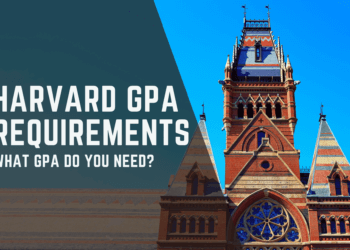
Harvard GPA Requirements: What GPA Do You Need to Get In?

Dissertation vs Thesis: Your 2024 Guide

Today's Graduates Are In A "Perkcession" - Here's What That Means
Leave a reply cancel reply.
Your email address will not be published. Required fields are marked *
Save my name, email, and website in this browser for the next time I comment.
Recent Posts
- 73% of job seekers believe a degree is needed for a well-paying role–but is it?
- ACBSP Vs AACSB: Which Business Program Accreditations is Better?

© 2024 TheGradCafe.com All rights reserved
- Partner With Us
- Results Search
- Submit Your Results
- Write For Us

Research Voyage
Research Tips and Infromation
What is the Difference Between a PhD Candidate and a PhD Student?
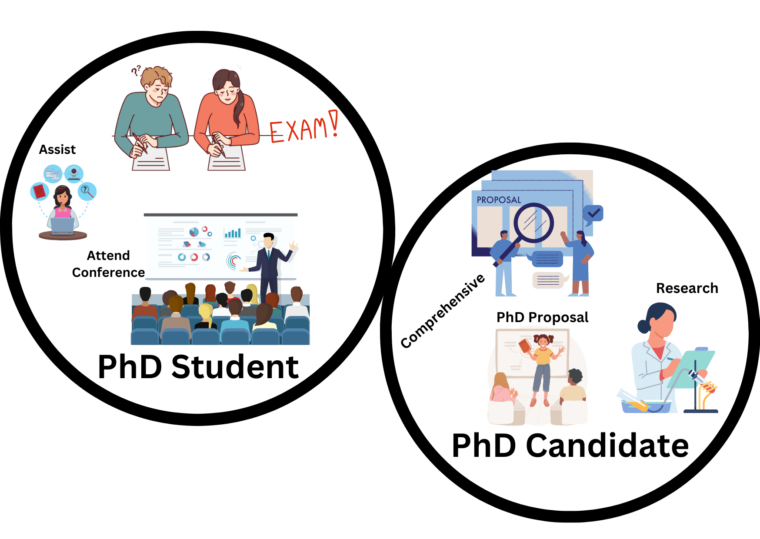
Pursuing a doctoral degree is a significant academic achievement that requires years of dedicated study, research, and intellectual rigour. Within the realm of doctoral studies, the terms ‘PhD candidate’ and ‘PhD student’ are commonly used, often interchangeably. However, a closer examination reveals that there are nuanced differences between these two designations. Understanding these distinctions is crucial for both prospective doctoral students and those seeking to comprehend the various stages of the doctoral journey.
In this article, we delve into the disparity between a PhD candidate and a PhD student, shedding light on the roles, responsibilities, and progression associated with each stage. We explore the specific criteria that differentiate a student from a candidate and the various milestones marking the transition. Additionally, we delve into the responsibilities and expectations that accompany each designation, illuminating the unique experiences and commitments faced by PhD candidates and students.
Furthermore, we acknowledge the variability in terminology across international boundaries, academic institutions, and disciplinary fields, providing insights into how different contexts might influence the usage of these terms. By the end, readers will have a comprehensive understanding of the contrasting aspects between a PhD candidate and a PhD student, facilitating informed conversations and a deeper appreciation for the intricate nature of doctoral education.
Introduction
Who is a phd student, when phd student attains status of phd candidate, variation in terminology.
Pursuing a PhD (Doctor of Philosophy) degree involves conducting original research in a specific field of study, making a significant contribution to knowledge, and demonstrating a high level of expertise. It is the highest academic qualification one can attain and is highly valued in academia, research institutions, and certain industries. A PhD signifies a deep understanding of a subject area, advanced analytical and critical thinking skills, and the ability to conduct independent research.
While the terms “PhD candidate” and “PhD student” are often used interchangeably, there are subtle differences between the two.
A PhD student typically refers to an individual who has been admitted to a doctoral program, actively engaging in coursework and other program requirements. They are in the early stages of their doctoral journey and are working towards completing the necessary academic components of their degree. On the other hand, a PhD candidate is typically someone who has progressed beyond the coursework stage and has advanced to the research phase of their program. They have usually completed comprehensive exams, passed a research proposal defense, and are actively engaged in independent research for their dissertation or thesis.
The purpose of this article is to provide a comprehensive understanding of the distinction between a PhD candidate and a PhD student. By exploring the criteria, milestones, and responsibilities associated with each designation, this article aims to clarify the unique experiences and progression of doctoral students. It also seeks to address the varying terminology used across different contexts and disciplines, enabling readers to grasp the intricacies of the doctoral journey and fostering informed discussions around this topic.
Through this article, readers will gain a comprehensive understanding of the journey from being a PhD student to becoming a PhD candidate and the distinct roles and responsibilities associated with each stage.
A PhD student is an individual who has been admitted to a doctoral program and is actively engaged in pursuing their doctoral studies. They are at the initial stages of their doctoral journey, seeking to expand their knowledge, skills, and expertise in a specific field of study. PhD students play a vital role in academic research communities as they contribute to the generation of new knowledge and the advancement of their discipline.
PhD students are required to complete a set of coursework specific to their field of study. These courses are designed to provide a foundation in the discipline, enhance research skills, and broaden the student’s understanding of relevant theories and methodologies. Coursework may include seminars, advanced classes, and specialized topics. The specific coursework requirements can vary between programs and disciplines.
Example: Imagine a student named Alex who has just been accepted into a doctoral program in psychology. At this stage, Alex is considered a PhD student as they begin taking relevant coursework, attending seminars, and collaborating with faculty members. They are laying the foundation for their research and acquiring the necessary knowledge in their field.
Who is a PhD Candidate?
Advancement from being a PhD student to a PhD candidate typically involves meeting specific requirements set by the doctoral program. These requirements may vary depending on the institution and field of study but often include successful completion of coursework, exams, and other program-specific milestones.
One of the primary requirements for transitioning to a PhD candidate is the successful completion of coursework and exams. PhD students are expected to complete a designated set of courses, which provide a broad understanding of their field and research methodologies. They are also required to pass comprehensive exams, which assess their comprehensive knowledge and understanding of their research area.
As part of the transition to becoming a PhD candidate, students typically prepare and defend a research proposal. The research proposal outlines the scope, objectives, methodology, and significance of the intended research. The proposal defense may involve presenting the proposal to a committee of faculty members, who evaluate its feasibility, rigour, and contribution to the field. Additionally, PhD students often have to pass comprehensive exams, which test their knowledge of their research area and related disciplines.
If you are not familiar with writing PhD proposal and making PhD proposal presentation, then visit my articles on “ How to Write PhD Proposal Presentation to the University ” and ” How to Make a PhD Proposal Presentation to the University Panel” . These articles will guide you through the process of preparation and presentation of PhD proposal to the University panel.
Upon successful completion of the requirements, PhD students are often granted candidacy status. Advancement to candidacy signifies that the student has demonstrated the necessary knowledge, skills, and potential to conduct independent research and contribute to their field. This status allows students to focus more exclusively on their research and dissertation work.
Once students become PhD candidates, there is a shift towards an increased emphasis on independent research. They are expected to dedicate a significant portion of their time and effort to conducting original research, collecting data, analyzing results, and making novel contributions to their field. The focus is primarily on their dissertation or thesis work, which serves as the culmination of their doctoral studies.
Example: Let’s consider a PhD student named Alex in the field of computer science. After completing their coursework and passing comprehensive exams, Alex develops a research proposal outlining their intention to investigate the applications of machine learning in cybersecurity. They present the proposal to a committee of faculty members, who assess the feasibility and potential impact of the research.
Alex successfully defends their research proposal and is granted candidacy status, transitioning from a PhD student to a PhD candidate. With candidacy status, Alex’s focus shifts towards conducting independent research. They spend considerable time collecting and analyzing cybersecurity datasets, developing and refining machine learning algorithms, and testing their effectiveness in detecting and preventing cyber threats.
As a PhD candidate, Alex works closely with their advisor, regularly discussing research progress, seeking guidance, and receiving feedback. They collaborate with other researchers in the field, attend conferences to present their findings and contribute to the scholarly community through publications. The focus is now on producing an original and significant contribution to the field of computer science through their dissertation.
The transition to PhD candidacy marks a critical stage in the doctoral journey, as it signifies the ability to independently drive research and make scholarly contributions. PhD candidates like Alex are immersed in the world of research, expanding knowledge, and pushing the boundaries of their field.
Terminology related to PhD candidates and PhD students can vary internationally and among different academic institutions. In some countries, the terms “PhD candidate” and “PhD student” may be used interchangeably, while in others, there may be specific distinctions. For example, in the United States, “PhD student” is commonly used, while in the United Kingdom, “PhD candidate” is more frequently employed. Additionally, different universities or institutions may have their own terminology preferences, which can create further variation.
Terminology can also vary based on the disciplinary field of study. Different academic disciplines have their own conventions and terminology for referring to individuals pursuing a doctoral degree. For instance, in the sciences, one might encounter terms like “graduate researcher” or “doctoral candidate.” In the humanities and social sciences, the terms “PhD candidate” and “PhD student” are often used. This variation reflects the specific linguistic and cultural norms within different academic domains.
In Canada, for instance, doctoral students are commonly referred to as “PhD candidates,” regardless of their stage in the program. In Australia, “PhD candidate” is the preferred term for those who have completed the required coursework and have advanced to the research phase. In contrast, in the United States, “PhD student” is frequently used to refer to individuals at all stages of their doctoral studies.
Disciplinary variations can also be observed. In engineering, individuals pursuing a doctoral degree are often referred to as “PhD students” or “doctoral students.” In contrast, in the field of education, the term “PhD candidate” is commonly used to denote those who have advanced to the research and dissertation stage.
It is important to note that these examples represent general trends, and there can still be variation within specific institutions and programs. The usage of terminology can evolve over time and may be influenced by regional or institutional preferences.
The distinction between a PhD candidate and a PhD student holds significant importance in the realm of doctoral education.
While these terms are often used interchangeably, they represent different stages and responsibilities within the doctoral journey. A PhD student is in the initial stages of their program, actively engaging in coursework, research, and academic requirements.
On the other hand, a PhD candidate has advanced beyond coursework, passed comprehensive exams, and is focused primarily on independent research and the completion of their dissertation.
Upcoming Events
- Visit the Upcoming International Conferences at Exotic Travel Destinations with Travel Plan
- Visit for Research Internships Worldwide

Recent Posts
- PhD or Industry Job? A Comprehensive Career Guide
- Post Doc Positions in India
- 04 Reasons for Outsourcing Academic Conference Management
- How to Put Research Grants on Your CV ?
- How to Request for Journal Publishing Charge (APC) Discount or Waiver?
- All Blog Posts
- Research Career
- Research Conference
- Research Internship
- Research Journal
- Research Tools
- Uncategorized
- Research Conferences
- Research Journals
- Research Grants
- Internships
- Research Internships
- Email Templates
- Conferences
- Blog Partners
- Privacy Policy
Copyright © 2024 Research Voyage
Design by ThemesDNA.com

- QUICK LINKS
- How to enroll
- Career services
The difference between doctoral students and doctoral candidates
By Brian Fairbanks
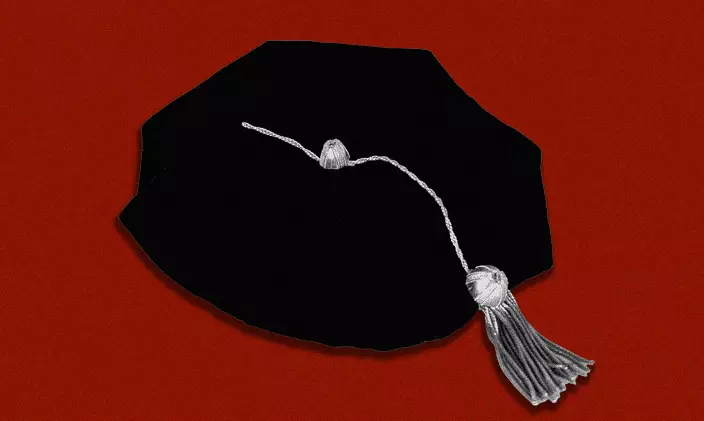
This article has been vetted by University of Phoenix's editorial advisory committee. Read more about our editorial process.
This article has been reviewed by Hinrich Eylers, PhD, PE, MBA, Vice Provost for Academic Operations and Doctoral Studies
This article was updated on January 2, 2024.
At a glance
- A doctoral degree , whether a PhD or a practitioner doctorate, is the highest academic achievement one can pursue at a university.
- A doctoral student is an individual who’s been accepted into a doctoral program and is working through classes and coursework. A doctoral candidate has completed the coursework portion of a doctoral program and is focused on writing a dissertation or equivalent project.
- Other doctoral programs include MDs, JDs, ODs, DCs and AudDs. Notably, many of these programs do not include a dissertation.
- Explore online doctoral programs in business, nursing, education and healthcare at University of Phoenix.
Many people who earn a doctoral degree will, at some point, be both a doctoral student and doctoral candidate. While these roles may seem mysterious from outside the (real or virtual) halls of academia, the distinction is fairly simple.
Before we cover the distinction, however, let’s get on the same page about doctoral degrees.
What is a doctoral degree?
In academia, one degree sits at the very top: the doctoral degree. Also referred to as a doctorate, a doctoral degree is the most advanced educational credential you can earn. Though some fields of study (like journalism) don’t have a doctoral degree, most typical academic fields do, as do the fields of health, medicine, law, education and business.
Doctoral programs can lead to a PhD in a variety of fields, such as literature, philosophy and history, or a practitioner doctorate in a field like business, health administration, nursing or education. Doctoral degrees involve years of intensive study, and many require a book-length dissertation. However, practitioner doctorates have different requirements and may not entail a dissertation.
Learn more about online doctoral degrees at UOPX!
Requirements of a doctoral program
Before graduate school, you must complete years of university courses, typically two degrees, before a program will consider admitting you. However, some programs have more lenient requirements than others.
Doctoral programs tend to be intentionally difficult and rigorous courses of study. As mentioned, there are several educational levels before a doctoral degree that both students and candidates will need to pass.
The requirements for a doctoral student include:
- Prerequisite degrees: Doctoral programs usually require that students obtain a bachelor’s and a master’s degree first.
- Required coursework: Each program requires different courses, but most will be in the student’s area of study, with some focused on adjacent or complementary subjects. Additionally, foundational coursework prepares students to learn about the research process.
- Qualifying exams: Typically, students must pass qualifying exams to enter doctoral programs, but not all programs require entrance exams.
If a dissertation is part of the doctoral program, the doctoral candidate must:
- Select a dissertation advisor or committee: During your time as a doctoral student, you will come into contact with many instructors. You will typically only interact with the instructors who are your dissertation advisor or on your dissertation committee. The committee is the audience for the doctoral candidate and ensures the candidate demonstrates command of the literature and methodologies relative to their field.
- Choose your dissertation topic: This is a pivotal point in your journey to earning a PhD or doctorate. Many programs ask for a general topic as part of your initial application. Your advisors will help you to create a specific and unique dissertation topic that will fuel your work over the next several years.
- Write the dissertation: Your dissertation or thesis will normally take a couple of years to write and will be a book-length culmination of your learning and research.
- Defend your dissertation or thesis: After you submit your final draft to your dissertation committee, you will need to orally present your work to the committee, answer questions and defend your work.
The requirements for a doctorate take many years to complete. While some people complete doctoral degrees in three to five years, others take seven to 10 years. The time span depends on your specific area of study, whether you take classes on a full-time or part-time schedule and how long it takes to complete your dissertation. This also includes your level of focus and intent.
read similar articles
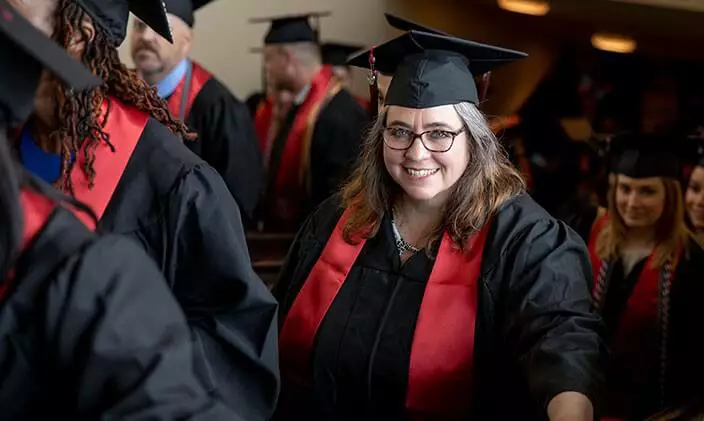
A guide to all 4 college degree levels
Doctoral candidate vs. doctoral student.
If you are interested in earning your doctorate, then it is important to understand the difference between being a doctoral candidate and a doctoral student.
What is a doctoral student?
A doctoral student is a person currently enrolled in a doctoral program at a university. Being a doctoral student involves completing a certain number of credits and coursework in an area of study and completing and passing several exams.
After students pass the qualifying exams (if the program requires it) and successfully complete required coursework, they become doctoral candidates.
What is a doctoral candidate?
A doctoral candidate leaves behind the structured learning schedule of a student. No longer does the candidate attend regular classes or take exams. Instead, they embark on a self-guided schedule for writing a dissertation. This culminates their studies and is tailored to their unique and individual areas of interest.
Doctoral candidates work closely with the advisors who make up their dissertation committee. The advisors provide guidance and critiques as the candidate writes a book-length dissertation. While the advisors can help along the way, what sets the candidate apart from the student is that, rather than simply learning what others have already discovered, they are conducting and writing about their own original, approved research — and then demonstrating what they’ve learned, as well as how it fits in the broader field of study or can be applied to tangible problems.
The meaning of candidacy in other doctoral programs
A PhD is not the only type of doctoral degree. There are also practitioner or professional doctorates, which may take the specific shape of medical doctorates, optometry doctorates, audiology doctorates, chiropractic doctorates, juris doctorates and others.
Such programs have their own conventions and terminology for various milestones. Some doctoral degrees, such as for law or medicine, focus on mastering the practice of a specific subject and the skills associated with that practice. As a result, terms such as candidate are not used universally among doctoral programs, and many of these programs do not include a dissertation.
PhD vs. practitioner doctorate
A PhD, or Doctor of Philosophy, is a doctoral degree that is focused on expanding and enriching an area of research. A PhD student typically focuses on developing new and original knowledge based on theory.
In contrast, a practitioner doctorate prepares students for leadership roles in their desired profession by applying existing knowledge to solve problems in their field or community. The practitioner doctorate generally involves rigorous curriculum, culminating in a dissertation or applied project that addresses a particular real-world problem.
Requirements of a practitioner doctorate and many practitioner programs
The requirements of a particular practitioner doctorate will vary according to the institution and the field of study. This makes sense when you consider that practitioner doctorates vary from juris doctorates to doctors of physical therapy.
While there may be similar experiences involved in the course of study, such as residencies or internships, the requirements are unique to the specific degree.

3 ways to jump-start your doctoral experience
Doctorates at university of phoenix.
While University of Phoenix (UOPX) does not have PhD programs, we do offer several online doctorates. Students might choose the UOPX programs because classes are flexible and offered online, and because of our unique “ Scholar-Practitioner-Leader model .”
Our doctoral programs are:
- Doctor of Business Administration — Gain the strategic vision and skills to position yourself as a business leader. This program teaches skills such as how to solve organizational problems, design and conduct research studies, introduce innovative business ideas to the industry and more.
- Doctor of Management — This program equips you with critical thinking skills to find creative solutions to complex problems, so you can bring out the best of your leadership skills.
- Doctor of Education — Learn how to use analytical, critical and innovative thinking to improve performance and solve complex problems in education.
- Doctor of Health Administration — If you’re a health professional who is seeking greater responsibility in shaping the future of the health sector, the Doctor of Health Administration can help you get there. You’ll study the challenges inherent to today’s healthcare landscape, including economic fluctuations, burgeoning patient needs and industry-changing legislation.
- Doctor of Nursing Practice — This program is designed for working nurses who require a doctorate for advanced practice or nurses who desire their terminal degree. It does not prepare students for professional certification or state licensure as a nurse or as an advanced practice nurse.

ABOUT THE AUTHOR
Brian Fairbanks is a freelance writer with a background in SEO content creation and blog article development
want to read more like this?

Get Mentally Fit with Critical Thinking
University life.
July 24, 2023 • 6 minutes

What is a Dissertation? A Guide
May 30, 2022 • 9 minutes

3 Ways to Jump-Start Your Doctoral Experience
September 28, 2022 • 5 Minutes

PhD Student vs. PhD Candidate

How I use gentle, digital nudges to stay current in the post-exams world
July 6, 2017 | Alison L.
Do you know the difference between a PhD student and a Ph.D. candidate?
A candidate is someone who has fulfilled all the requirements for the degree except the dissertation.
I’m a historian (see my earlier post about being a humanist at MIT ), so my path to candidacy differs a bit from other doctoral tracks at MIT. But whatever the discipline, the transition from student to candidate is an arduous process.
My department’s requirements involved: completing two years of coursework; demonstrating proficiency in a research language other than English; submitting at least one grant application; writing and revising a dissertation proposal that the dissertation committee must approve; and, most grueling of all, passing qualifying exams.
I became a candidate on November 24, 2015, after a weeklong examination period that involved three separate seven-hour written exam and a two-hour oral examination during which our committee members can grill us on anything they please.
I felt prepared for the written exams, which were open note, because I’d done nothing but read, take notes, and revise for the four months leading up to the exams.
But I lost sleep (at a time when I really couldn’t afford to be losing sleep) fretting about the oral exam. I shouldn’t have worried as much as I did. While there were a couple moments of panic—like when I blanked on the two ecozones separated by Wallace’s line—I survived “quals.”
So, what do you do once you become a candidate?
First, you take a break. I gave myself a little over a month to relax. I worked on lower-stakes projects, read fiction, attended departmental lectures, caught up with colleagues. I enjoyed the holidays at home in Chicago.
But once the New Year rolled around, a new sense of panic set in. Without the motivating pressure of exams to keep me working at a breakneck pace, how would I ever stay up-to-date in my fields? This anxiety, I’m willing to guess, is one shared by almost all academics.
While I’m actually more interested in how others have handled this pressure—comment away please!—I wanted to share a few tips I’ve picked up for keeping au courant .
1. Sign up for eTOCs That acronym stands for email Table of Contents alerts. Most journal publishers have a system that allows you to receive emails detailing the contents of their most recent releases. Sign up for a few of these and you’ll receive quarterly reminders that make it easier to stay on top of developments in the literature.
For some fields, it might not be necessary to read entire journals. In that case, pick some keywords and set up a bunch of Google Scholar alerts. Talk to your advisors and peers to see what works best in your discipline.
2. Make social media work for you Choose one social media platform and turn it into a research tool. My platform of choice is Twitter. You might be surprised by the number of scholars and professional associations that use social media. I rarely tweet myself, but I check Twitter at least once each day to find links to interesting articles, news about gatherings in my field, and to follow the work of scholars I admire. In addition to yielding worthwhile information, my Twitter sessions have the added benefit of tricking my brain into thinking it’s taking a break from work.
If you’re wondering how to curate your Twitter feed, first take a look at papers you’ve written for classes or published. See if the scholars that you cite in your own work are on Twitter and go from there. This is the most casual form of networking, but especially for introverts (like myself) these social media e-introductions facilitate in-person conference meetings, which can lead to future collaborations.
3. Listservs make life easier Most people at MIT know about the free food listserv. I’m not a member because I don’t need that kind of temptation in my life. Still, I’m a big fan of using listservs to join intellectual communities. In addition to the handful of MIT-based lists that tell me about upcoming lectures and workshops here on campus, I receive emails from communities at other Cambridge- and Boston-based schools. I’m also on a few listservs for universities in other cities. Even if I’m never able to attend those events, I know who is working on what where. If academia is about staying in the know, listservs help you do that.
I’ve written this from the perspective of a PhD candidate who needed gentle, digital nudges to stay current in the post-exams world, but I hope they prove useful for students, candidates, and beyond. Now comes the important question: What are your strategies for staying up-to-date?
Share this post:
This site uses cookies to give you the best possible experience. By browsing our website, you agree to our use of cookies.
If you require further information, please visit the Privacy Policy page.
Want to Get your Dissertation Accepted?
Discover how we've helped doctoral students complete their dissertations and advance their academic careers!
Join 200+ Graduated Students

Get Your Dissertation Accepted On Your Next Submission
Get customized coaching for:.
- Crafting your proposal,
- Collecting and analyzing your data, or
- Preparing your defense.
Trapped in dissertation revisions?
Phd candidate vs student, published by steve tippins on may 19, 2020 may 19, 2020.
Last Updated on: 2nd February 2024, 03:03 am
You make the transition from PhD student to PhD candidate after you complete all your coursework and your comprehensive exams (if required). A PhD candidate’s sole task is to conduct their research and write their dissertation.
In other words, a PhD student is still completing their coursework. They could be on the first day of their PhD program. A PhD candidate has completed all of the requirements for their degree except their dissertation (yes, that’s the infamous “ all but dissertation ” status).
PhD candidacy means you’re a PhD in training. Now you’re ready to spread your wings a little–with some guidance.
Your time as a PhD candidate is your chance to demonstrate that you are ready to be an independent scholar. It’s also your chance to screw up and have that be okay–to have support. Your committee will help you. Since it’s the first time you’ll go through the process of creating and performing a study on your own, there’s no reason to believe you’ll be perfect at it. That’s why the process is designed so that your committee can give you guidance.
But besides the simple definition above, what are the implications of being a PhD candidate vs student? Turns out, there are many important differences. Without keeping these in mind when you become a PhD candidate, it’s easy to spin out and get off track and not understand why.
PhD Candidate vs Student: What Are the Differences?

While “PhD Student” and “PhD Candidate” are both steps on the journey to getting a PhD, there are significant differences between them. Here are some of the differences between PhD candidate vs student.
Lack of Structure
When you’re doing coursework, there is structure; there are assignments and deadlines. Of course, in graduate coursework teachers aren’t on top of you to turn in assignments like they would be in an undergraduate program. However, there is a deliverable (final project, test, etc) that you have to complete each quarter. You have things to complete by a certain time in order to move forward.
Once you become a candidate, there’s no syllabus and there are no due dates. It’s completely up to you to move forward in the process.
Some people find it hard to make the transition to the lack of structure that comes with being a PhD candidate.
Academic Writing
Academic writing skills become really important when writing your dissertation –more important even than they were during the coursework phase of graduate school. Academic writing is essentially a new language, with very specific meanings and requirements.

For example, you can’t just say “people believe x or y,” you have to say who they are and how you know that, giving citations to back it up. Many words (like “significant”) have very specific meanings and can’t be used the way you might use them in speech.
As a PhD student, your professors should be teaching this language to you, so that as a PhD candidate, it will come as second nature.
How Many People Do You Have to Keep Happy?
Here’s another difference between being a PhD student vs PhD candidate: as a PhD candidate, you reduce the number of people that you have to keep happy.
As a student, you have to keep in mind the requirements from each professor teaching your classes, as well as matriculation requirements from the department, preferences and advice given by your advisor, and even the research interests of the people for whom you’re writing papers.
Over 50% of doctoral candidates don’t finish their dissertations.
Once you become a candidate, it’s just your committee that you have to keep happy, meaning that those are the people who will hold you accountable and outline the requirements for completion of the degree. For that reason, you’ll want to choose your committee members with care.
Hopefully, by the time you need to choose your committee, you’ll have encountered professors who are intrigued by your research interests and with whom you feel personally and professionally compatible.
Freedom to Choose

When you become a PhD candidate, you get to work on what you want to work on. You can pursue the topic that interests you instead of whatever goes with the course you’re in. It’s a time to really apply all those skills you were accumulating in the classes. For example, the statistical procedures you learned in stats classes and theories you learned in the courses for your discipline.
This is the stage of culmination, when everything you’ve learned becomes not the goal, but the foundation for your own body of work. It’s one of the exhilarating (and sometimes intimidating) parts of being a PhD candidate vs a student.
Expectations and Support
Faculty often use the “go wander in the woods” approach for PhD candidates. It’s essentially like hearing, “Go find things and come back to me when you’ve got something.” They’ll usually tell you when it’s not enough, but they might not give you much direction about what they’re looking for beyond that.
The reason for this is to encourage independent scholarship. They want you to have the opportunity to build your own case for why and how this topic should be studied. But this first foray into academic independence can be quite a challenge.
When they tell you to “go wander in the woods,” they’re not even telling you what kind of tree to look for. Sometimes you get specific directions, but sometimes you get vague answers like “go look for more.” This can be frustrating. Many clients come to me because they need more direction, which is understandable.

In your coursework, you were often given studies to read or asked to find studies on particular topics that relate to the course topic. Dissertation research is more nebulous. Your committee members want you to decide which directions to go in and which kinds of studies best relate to your research questions.
They won’t be asking you for the “right answer.” They’ll be asking you, “Why? Justify what you did or plan to do.”
Here’s another difference between PhD candidate vs student: a PhD candidate can put “PhD(c)” after their name, indicating that they have achieved status as a PhD candidate. However, I suggest using caution with this designation. The APA has expressed concern that its use may be misleading to the general public and cause people to believe you have a PhD.
PhD Candidate vs Student: An Interview With a PhD(c)

Did you notice a change in how professors viewed you, once you moved from “student” to “candidate”?
Yes. It actually happened during my comprehensive exams. Before that, when I had been asked a question, the professor already knew the answer and was asking to see if I knew also. In my comprehensive exams, I had become the expert and my committee members were actually asking questions out of interest.
We were all pieces of a puzzle at that point. Instead of them saying, “tell me about John Dewy’s influence on education in the 1920s,” they asked, “How do you think Dewey influenced the school system’s openness to parental involvement in schools?” The professor who asked that was genuinely interested, because she was an expert in educational history but had not specifically studied parent involvement in schools, as I had.
That moment represented a big shift for me; it meant that as a PhD candidate, I had to then take responsibility for my own learning, because nobody knew as much as I knew about that particular thing.
It’s exhilarating on one hand, because you suddenly realize you’re the expert. On the other hand, it’s scary because we’re used to somebody else knowing the answer, being able to correct us if we’re wrong.
A Narrowing of Scope

It sounds like your topic was centered on something very particular, so maybe not a lot of other people have studied what you want to study?
Yes, that’s true. When you go through a PhD program your research area is pretty narrow. You start out with a general interest in something, but as you go through your classes, specific areas start to stand out.
I started out with an interest in egalitarianism in public education, but my own past experience combined with some seminal texts to direct me toward parent involvement in schools, specifically. Some books and articles showed me that how schools treat parents can be an indicator of egalitarianism, maybe a clearer one than any rhetoric about the students.
So, there’s this winnowing effect, as you move forward. Your professors love to watch this, too. Especially in the smaller, seminar classes, they seem to be waiting to see what makes your heart beat faster.

Speaking of your heart beating faster, is one distinction of the candidacy phase to have more passion about the work you’re doing?
I think that’s ideal, for sure. It doesn’t always happen, because some professors are really after students who will jump onto their research platform, because they can piggyback on the students’ research to get more publications. Good committee chairs, though, will want you to find your own path toward something you can happily spend a lifetime studying.

I suspect that one of the reasons people don’t finish their dissertations is because they weren’t really passionate about the topic in the first place. It’s only one possible reason, but it should give a doctoral student pause.
It’s really hard to finish a PhD, so you want to knock down any barriers to finishing. Being passionate about the topic will keep you going when things feel onerous. It’s like marrying someone with a sense of humor — even when you’re not getting along very well, there’s something you can always appreciate about your spouse.
Imposter Syndrome

What about “ imposter syndrome ”? Does that come into play when you become a candidate?
It sure did for me! To be one of the only people who’s an expert in that field feels like a huge responsibility because people are depending on you. Your research has to be accurate because people will be making policies based on your conclusions.
Even with good intentions, your conclusions can be erroneous, and there are plenty of historical examples of policies being made on the basis of erroneous conclusions. The consequences can be enormous. And that’s all on you!
So then the questions become, “Am I really up to this?” “Who am I to drive policy?” “I’m just a fallible human being, so why would (or should) anyone listen to me?” Especially right after comps, I was thinking, “How could I be the expert? Nothing really has changed about me; I’m still the same person. Yesterday, I was a student, but today I’m an expert?”

My observation is that this happens with women more than men, probably because women in authority positions are more often questioned than are men. But even for men, this seemingly sudden transformation can make you worry that you’re not qualified for the responsibility you’re being given.
The thing is, It’s not really as sudden as it seems. You’ve been studying something for, say, four years, so you have a claim to expertise. And you’ve been narrowing your interests all along the way, so you’ve been slowly building up your expertise.
Besides, in many good schools, you get warned a lot about how easy it is to make a mistake in research and how easy it is to make false conclusions. They beat that into you so much that it can become a constant doubt.
In most primary and secondary schools, and sometimes even in college, they teach you to sit down, shut up, and learn something. For people to suddenly be saying, “tell me what you think,” can be challenging. I suspect that that’s another major reason people who finish their coursework don’t complete their dissertation: they’re not sufficiently prepared for this shift in roles.
Suggestions for PhD Candidates

Having been through this shift yourself, do you have any advice for students in this stage of their process?
Mostly, I think it’s a matter of taking personal responsibility and seeing yourself in a new light. It helps me to consider this process as a transformation — like a caterpillar into a butterfly. The “student” stage is the caterpillar stage, where you’re eating the milkweed, the knowledge, to nourish you.
Then there comes a time when you’ve got to stop being a consumer and transform into a real researcher. That’s like the metamorphosis stage when the caterpillar is in the chrysalis, melting down. (And I have had plenty of meltdowns myself in this stage!) That’s when you’re on your own, writing the dissertation.
That chrysalis stage is a real slog. You try as hard as you can, and your proposal still gets rejected — twice. Or the IRB wants you to structure the study differently, after your committee has already approved it. Or you can’t get enough participants for your quantitative study or enough data for your qualitative study — whatever. It’s the biggest challenge of most people’s life!

But if you stick with it, you actually do get this huge reward. As a butterfly, or a PhD, you bring something unique to the world. You have an important role in society that can potentially change the course of history — even if you don’t envision that in the beginning.
And that’s why the committee makes the process arduous. They want to be sure you’re great at what you do, because there is potentially an awful lot riding on your shoulders. I’m actually grateful for the rigor they demand. I want to feel ready for the role I’m taking.
Ultimately, candidacy is time in the chrysalis. It’s a time of transformation, built on one’s time as a student. It’s a time in the dark and alone, which makes it challenging, for sure. But I trust I’ll eventually emerge strong enough to spread my wings.
Steve Tippins
Steve Tippins, PhD, has thrived in academia for over thirty years. He continues to love teaching in addition to coaching recent PhD graduates as well as students writing their dissertations. Learn more about his dissertation coaching and career coaching services. Book a Free Consultation with Steve Tippins
Related Posts

Dissertation
What makes a good research question.
Creating a good research question is vital to successfully completing your dissertation. Here are some tips that will help you formulate a good research question. What Makes a Good Research Question? These are the three Read more…

Dissertation Structure
When it comes to writing a dissertation, one of the most fraught questions asked by graduate students is about dissertation structure. A dissertation is the lengthiest writing project that many graduate students ever undertake, and Read more…

Choosing a Dissertation Chair
Choosing your dissertation chair is one of the most important decisions that you’ll make in graduate school. Your dissertation chair will in many ways shape your experience as you undergo the most rigorous intellectual challenge Read more…
Make This Your Last Round of Dissertation Revision.
Learn How to Get Your Dissertation Accepted .
Discover the 5-Step Process in this Free Webinar .
Almost there!
Please verify your email address by clicking the link in the email message we just sent to your address.
If you don't see the message within the next five minutes, be sure to check your spam folder :).
Hack Your Dissertation
5-Day Mini Course: How to Finish Faster With Less Stress
Interested in more helpful tips about improving your dissertation experience? Join our 5-day mini course by email!
- 7 Dissertation Writing Tips You Definitely Need to Know
toughdecisions.net
make your dissertation writing a breeze
Phd candidate vs student: explaining the difference.
When looking to finish a doctorate, you will often come across 2 similar terms: “PhD candidate” and “PhD student.” To many people, these terms represent the same thing. However, academics and those who have passed through a doctorate program understand that there is a major difference between both terms.
As a fresh or aspiring PhD student, you must understand the difference between a doctoral student and a doctoral candidate. This article will seek to explain the PhD candidate meaning and explore the definitions of what it means to be a candidate and a student.
PhD student vs candidate
A PhD student is currently enrolled in a PhD program. The learning style for these students is hybrid, meaning that a student can learn either online, on-site, or both. Students who are enrolled in this type of program are often required to complete certain course credit loads and pass exams. The program involves a ton of research, dissertation work, academic writing, and defense.
A PhD candidate, on the other hand, is someone who has done all but completed and submitted a dissertation. It is the transition and progression phase from studentship to candidateship. This title or tag is earned when a student completes all coursework and passes all examinations required by the university. Having explained this, the highlight of their variance lies in the completion of the required coursework.
Distinctions between a PhD candidate vs PhD student
To better understand the differences between these two groups of people, their variances will be highlighted and explained below.
A common question often asked is: do PhD students take classes? The obvious answer to this is yes, they do. The structure of assignments, deadlines and coursework differs for a PhD student and a candidate. There is a lack of structure for a PhD candidate. You are free from following deadlines or syllabi. The progress of your dissertation is completely at your pace. Whereas, as a PhD student, you are guided by deadlines and an academic structure that you must meet to complete your doctoral program.
- Academic writing
The amount of academic writing required of you as a PhD candidate would be far greater than that required of you as a student. Remember that your dissertation alone carries the bulk of your candidateship, and this consists of about three hundred pages’ worth of research work.
- Academic circle
Your academic circle reduces when you become a PhD candidate. The number of people you will need to academically communicate with will also decrease. The reason for this is that as a student, you must meet all of your professors’, departments, colleges, and advisors’ requirements. But, as a candidate, your academic circle revolves around your committee.
As a candidate, you have the freedom to decide your topic, theme, and research style. It is a time for you to implement and showcase the practical and theoretical processes that you learned as a student. A PhD student does not have this privilege; instead, all topics are chosen by the professor.
A candidate does not receive as much support as is required, although so much more is expected of them. For instance, a student would be given tasks to work on with the objective in mind. But a candidate would be left to independently find an objective and work towards it.
A PhD candidate can put the PhD title before their names, but a student cannot. However, this practice is not entirely encouraged as it might mislead the public into thinking you already have a doctorate degree.
While the above clearly differentiates between a PhD student and a PhD candidate, there is a minor confusion between a researcher, candidate, and a student in doctoral programs. While the terms PhD candidate and PhD student differ, a doctoral researcher is a term used to describe “all” students who are pursuing PhD degree in any university.

You Might Also Like


30 Hot Dissertation Topics in Education to Research This Year
Dissertation abstract writing: what no one is talking about, guide on how to publish a dissertation & dissertation sections, leave a reply cancel.

- Call: +32 485 729 359
- Email: EDAMBA EXECUTIVE SECRETARY

PhD students and PhD candidates: Know the Difference
Phd students and phd candidates: know the difference feb 20, 2023.
Who is a PhD Student?
A PhD student refers to an individual who has registered for a doctoral degree program. These students, often known as learners, may complete their coursework on campus, online, or in both settings. Students must fulfil a minimum number of academic credits and pass prerequisite tests to enroll in a standard PhD program.
Also Read, FIVE THINGS YOU SHOULD KNOW BEFORE YOU START A PHD
Once this phase is completed, the student progresses to the dissertation phase, which involves research, writing, and defense.
The distinction between a PhD student and a PhD candidate is that the former is still undertaking coursework and has not yet commenced the dissertation process or passed the qualifying exams, although they may be in the process of doing so.
PhD students' education is defined by a predetermined structure, which also sets forth their schedules.
Who is a PhD Candidate?
A person who has finished all the necessary coursework and passed their qualifying tests is considered a PhD candidate. Once this goal is met, the individual gains the unofficial status of all but the dissertation (ABD).
In general, PhD students eagerly anticipate the transition from PhD student to PhD candidate since it will provide them with the opportunity to focus on their original research and start writing their dissertation with the help of their committee advisors.
Know more about Dissertation and Thesis and what are the major differences between these two ,
PhD student vs Candidates: What Are the Main Differences?
The main distinction between a PhD candidate and a PhD student is that as a student, one is still engaged in course-related activities such as attending classes, writing tests and exams, and completing assignments. On the other hand, becoming a PhD candidate puts you one step closer to earning a doctoral degree and adding the title PhD to your name after passing the tests and writing your thesis . It is important to note that you have to be a student before you become a candidate .
While the differences between being a Ph.D. student and a Ph.D. candidate may appear slight, they carry a lot of weight. Transitioning to a Ph.D. candidate can feel like stepping into a new realm, with new demands and expectations. Despite having completed their coursework, many Ph.D. candidates choose to take self-directed study courses with faculty members whose research aligns with their own, as it can help guide their own research and even influence their dissertation.
If you're part of the PhD community or considering pursuing a doctorate degree, it's important to understand the distinction between being a PhD candidate and a PhD student. Knowing where you stand in your academic journey can help you make informed decisions and set realistic expectations. Keep learning and growing as a PhD researcher , and remember to seek guidance and support from your peers and advisors along the way.
Read more about the EDAMBA PhD Students Forum
Read more about the EDAMBA Summer Research Academy
EDAMBA aims to achieve its mission through three pillars of activity: 1. The Annual Meeting 2. The Summer Research Academy 3. The EDAMBA-EIASM Consortium of Doctoral Supervision
Edamba engages in global collaboration across networks 1. european code of practice 2. equal 3. aacsb, enquiry form.

- Code of Ethics
- Dissertation Editing
- Dissertation Coaching
- Free Consultation
Ph.D. Candidate vs Ph.D. Student – What’s the Difference?
One of the most significant milestones in any doctoral education is the transition from Ph.D. student to Ph.D. candidate. While the change in title may be the difference of only one word, getting the distinction of being a Ph.D. candidate represents a major step forward on the journey to earning a dissertation. Though a Ph.D. candidate has not yet fulfilled all of the requirements for earning a doctorate, they are well on their way.
The elevation in title from Ph.D. student to Ph.D. candidate is an accomplishment recognized both within a student’s home department and institution and beyond. In addition to being that much closer to earning a Ph.D., achieving the designation of Ph.D. candidate also opens professional and academic doors to new opportunities. Prior to becoming a Ph.D. candidate, it’s a good idea to become informed about what it entails.
These are a few frequently asked questions about what it means to become a Ph.D. candidate:
- How do you become a Ph.D. candidate?
- What is the difference between being a Ph.D. student and a Ph.D. candidate?
- What are the benefits of being a Ph.D. candidate?
- How long does Ph.D. candidacy last?
Becoming a Ph.D Candidate
Transitioning from Ph.D. student to Ph.D. candidate is a fairly straightforward, if involved, process. To become a Ph.D. candidate, you must first complete all of your academic coursework–required classes, electives, colloquia, the whole nine yards. Early in a Ph.D. program, most Ph.D. students are also tested during an oral qualifying exam with two or three department faculty members to ensure they are making adequate progress in the program.

Once all classes are completed, Ph.D. most students sit for comprehensive exams. These are written exams (sometimes with an additional oral component) designed to test both broad knowledge of the field as well as narrow subject matter. Many Ph.D. students regard comprehensive exams as a major hurdle on their path to completing their Ph.D.
As a Ph.D. student, comprehensive exams (“comps” for short) were definitely my greatest source of anxiety on the road to earning my degree. I spent months studying for these exams, reading hundreds of books and articles in order to prepare myself to answer just three questions. Looking back, getting ready for these exams and passing them was definitely the most intense part of getting my Ph.D.. T he transition from Ph.D. student to Ph.D. candidate can feel like a crucible for proving yourself up to the task of writing a dissertation.
Ph.D. Student Versus Ph.D. Candidate
Though the distinctions between being a Ph.D. student and a Ph.D. candidate may seem subtle, they are significant. In some ways, becoming a Ph.D. candidate feels like entering a new world, one laden with additional expectations. As a senior member of your graduate cohort, you may take on a mentoring role for new Ph.D. students in your department. You may also be asked to serve as a department student representative on university committees.
Though Ph.D. candidates are technically finished with coursework, many opt to take independent study courses with faculty whose research aligns with their own. This helps guide the Ph.D. candidate’s own research, and may even shape their dissertation. Between researching, writing, wading into the job market, and teaching (for those on a fellowship), a Ph.D. candidate’s day is as full as ever.

Having the freedom to dedicate the bulk of my time to my own research was one of my favorite parts of being a Ph.D. candidate. There are very few opportunities in life to devote yourself wholly to the study of one narrow topic, and it can be very rewarding. In addition to writing your dissertation, this is also a great chance to map out the first couple academic articles that you’ll write after graduating.
Benefits of Being a Ph.D. Candidate
While being a Ph.D. candidate often means accepting additional responsibilities in your department, it also leads to new and exciting opportunities . Ph.D. candidates are afforded more consideration for conference papers and panels, as well as travel and research funding. In many departments, Ph.D. candidates are a priority for faculty and also receive a lot of mentoring.
Though the leviathan of the dissertation looms ahead of them, some Ph.D. candidates may also feel like the pressure on them is less intense, and for good reason. Doctoral coursework is a proving ground, and a difficult one at that. Successfully making the leap from Ph.D. student to Ph.D. candidate means that you have what it takes to go the distance and complete your degree. Keep that in mind!

Length of Ph.D. Candidacy
During the period of Ph.D. candidacy, doctoral candidates are designated as being ABD , or “all but dissertation.” The length of time that a Ph.D. candidate has to finish their dissertation is not indefinite. At most institutions, dissertations must be completed within six years, barring extenuating circumstances. Before embarking on your dissertation , it’s a good idea to check with your advisor or department chair and confirm the time limit.
The period of Ph.D. candidacy is a great time to begin the shift from student to professional. The year that I spent between coursework and graduation shaped me into a professional academic. In addition to researching and writing, I also organized department events, attended conferences, created my professional dossier, and went on the academic job market. It was a busy year, but I also learned a lot.
Regardless of the department’s timeclock for the completion of your dissertation, you’ll want to set up your own schedule and timeline for researching, writing, and defending your dissertation . For most Ph.D. candidates, this process takes 1-3 years, but it’s specific to each individual. You will be the best judge of how much time you need to complete your dissertation. Pace yourself and keep your eye on the prize!
Related posts:

Courtney Watson, Ph.D.
Courtney Watson, Ph.D. is an Associate Professor of English at Radford University Carilion, in Roanoke, Virginia. Her areas of expertise include undergraduate and graduate curriculum development for writing courses in the health sciences and American literature with a focus on literary travel, tourism, and heritage economies. Her writing and academic scholarship has been widely published in places that include Studies in American Culture , Dialogue , and The Virginia Quarterly Review . Her research on the integration of humanities into STEM education will be published by Routledge in an upcoming collection. Dr. Watson has also been nominated by the State Council for Higher Education of Virginia’s Outstanding Faculty Rising Star Award, and she is a past winner of the National Society of Arts & Letters Regional Short Story Prize, as well as institutional awards for scholarly research and excellence in teaching. Throughout her career in higher education, Dr. Watson has served in faculty governance and administration as a frequent committee chair and program chair. As a higher education consultant, she has served as a subject matter expert, an evaluator, and a contributor to white papers exploring program development, enrollment research, and educational mergers and acquisitions.
Comments are closed.
How to Finish Your Dissertation in Half the Time
Learn how to avoid the pitfalls preventing you from finishing your dissertation faster.
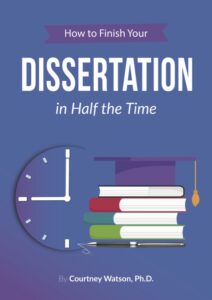
Subscribe to get the free eBook!
Dr. Courtney Watson In the News
“ See It for Yourself ” in With Good Reason: Beyond the Book July 22, 2022
“ I Thought You’d Never Ask: Consent in Contemporary Romance ” in New Frontiers in Popular Romance (McFarland) June 13, 2022
- Common Errors
- Dissertation Success
- Presentation
- Quantitative Analysis
- Surviving Grad School
“How to Finish Your Dissertation in Half the Time”
Clearing Universities & Courses
Clearing advice.
Recommended Clearing Universities
Popular Course Categories
Course search & discover.
Start the search for your uni. Filter from hundreds of universities based on your preferences.
Search by Type
Search by region.
Recommended Universities

University of Kent
South East England · 96% Recommended

Ravensbourne University London
London (Greater) · 88% Recommended

University of Surrey
South East England · 98% Recommended
Search Open Days
What's new at Uni Compare

West London Institute of Technology
WLIoT provides students with higher technical skills that are demanded by employers, learn more here!

Surrey has been shortlisted for the University of the Year 2023 - find out more here!
Ranking Categories
Regional rankings.
More Rankings
Top 100 Universities
Taken from 65,000+ data points from students attending university to help future generations
About our Rankings
Discover university rankings devised from data collected from current students.
Guide Categories
Advice categories, recommended articles, popular statement examples, statement advice.

What to include in a Personal Statement

Personal Statement Tips
Phd students.
The PhD is a long-standing UK qualification and has been part of the fabric of UK universities for as long as higher education has been around.

How do PhD students cope with the stresses of PhD qualifications and how many papers should a PhD student publish?

What is a PhD student?
A PhD research student takes on a project focusing on a particular topic. They will zone in on a research hypothesis, explore it and write up the results. Once they complete this they obtain a Doctor of Philosophy degree - which is the highest level of higher education.
A PhD research student will spend between three to seven years - full or part-time - completing their thesis which will add value to the research world in their chosen subject.
What does a PhD student do?
So, what do you do as a PhD student? Doctorate students work on a research project or hypothesis for several years, completing a large piece of work that is original in that subject area. The thesis will provide new research and insight in its contribution to that field.
Other than completing their huge thesis, a PhD student could be teaching, with many teaching or working as assistants within their department at university. Some institutions expect their PhD students to do this, whilst others offer it as an optional extra. You could find yourself assisting with lectures or tutorials and helping with supervising undergraduates.
Most PhD students are still full-time students, they are often passionate and engrossed in their particular field and work part time jobs whilst completing their degree.
But if you’re wondering how many papers does a PhD student publish? It’s typically their thesis that is completed in the end, but this could change after their doctorate, as many continue in the academic field.
However, regarding how many papers should a PhD student read? This is entirely down to the individual learner, although it’ll most likely be hundreds. A thesis can be 80,00-100,000 words, and the amount of research needed is substantial, much more than the 12,000 word Master’s dissertation. This is why it takes so long to complete.
What is it like to be a PhD student?
The life of a PhD student will vary for each person but the foundations will be the same; studying, working, and research.
PhD student life is full of papers, reading and analysing, as well as researching their own topic. It may include lectures and seminars that they teach as part of their Doctorate, it might involve a part time job they do on weekends, but every PhD student’s day-to-day life can differ.
Some may document their journey through a PhD student blog, whilst others may still live at home, much like individuals in any area of life, they’re all unique.
Working towards a doctorate is a lengthy and intense process - but it offers huge rewards. The average age of a PhD student in the UK is usually someone in their 30s. PhD’s expect their students to have a Master’s and undergraduate degree which take some time to complete. Further, most PhD’s cost a lot if you can’t secure funding so this may take time-saving up for. Because of all of this PhD students can range from 22-years-old to 60 - the possibilities are endless.

What makes a good PhD student?
There isn’t an essential checklist to being a good PhD student, but there are several things you can do to ensure you keep yourself on track.
Strong time management is one of the vital parts of studying for a Doctorate. Treat it as a full time job and set enough time aside each day to work on it, it’s a long and difficult process that can be broken down into pieces and seem more manageable. This will help when you’re writing your thesis, as all the time and effort you’ve put into it will start showing, as well as providing experiences of working to a schedule. Although you should put a lot of time into your work, it’s just as important to enjoy life, socialise and allow yourself ‘down time’.
Don’t send large pieces of work to your supervisor - they also have large workloads - instead, send short submissions regularly to receive constructive and helpful feedback. This will be more productive as you’ll have the chance to assess the points highlighted instead of having less support on huge pieces of work that are thousands and thousands of words.
It’s fine if other areas of life are taking up too much of your time, like teaching, being a student representative, or work and life commitments. If this is the case address the situation maturely and calculate how much time you can give and what you need to realign. It may be that you work fewer hours or you stop going out three times a week.
Your PhD degree or other areas in your life should work in a balance. For example, how many hours should a PhD student work? This is down to you and how much you have to get through each day and week.
How to manage your time as a PhD student?
For any prospective PhD student, the average week can depend on a number of factors; your learning style; the subject area; work patterns and facilities like lab access; what stage you are at for your PhD; what you have agreed with your supervisor; personal preference for working patterns and the university’s regulations.
Some students can work between 25 to 70 hours a week - depending on all of their commitments. Completing a doctorate is hard work and the individual areas of the thesis require different demands on your time. Peer pressure and overbearing supervisors may contribute to feeling like it’s taking up a large part of your life, but address each issue as it comes along and it won’t feel so uncomfortable or that it’s ‘too much work’.
It’s important to remember that your supervisor and university want you to complete a successful PhD and they are essentially supporting you - they want you to come out with something amazing!
For a lot of people, finishing a PhD degree is a huge academic achievement, as it’s the final product of several years of commitment, higher education, and the earned right of being specialised in your topic.
Who can supervise a PhD student?
A strong and positive student-supervisor relationship is vital to the success of your degree. Supervisors are appointed to supervise any work you do.
Supervisors are friendly enough people, but if you feel you need to work on your relationship, be honest about it with them - you’ll be with them for several years! And the final resort is changing your supervisor by speaking to the department and university, however, this is an extreme circumstance that most PhD students don’t need to do.

How much does a PhD student earn in UK?
This is down to how much the university pays it’s PhD students for working at their establishment as a lecturer or in student support. The PhD student salary for UK universities can vary, so it’s worth checking before applying to study for a doctorate at that establishment. Not all universities require their PhD students to work whilst they study, if this is the case, you won’t get a ‘salary’ but may receive financial support for living costs and tuition fees.
Next, there are many different types of PhD student jobs available outside the university grounds. University towns or cities usually have higher retail and restaurants available, because of the student life and atmosphere in general. These are great at offering more flexible hours, including evenings and weekends, which can be perfect for your research.
However, a PhD student salary is something that can’t be calculated as an average, as it’s down to the individual and how much they are working.
How much does it cost to fund a PhD student?
This is an important question if you live at home, with parents, with a partner or even on your own. There is PhD loan student finance in the form or PhD studentships or scholarships from universities, research councils and charities. There is also a PhD student loan provided by the government which you end up paying back via your earnings afterwards.
Securing funding can be a major worry for a lot of PhD students as it costs a pretty penny to complete the doctorate. However, there are lots in place to aid those who are embarking on the journey. For example, PhD student council tax is free, meaning students don’t have to pay council tax. If you are living with one other person who isn’t a student, they can apply for 25% off of their bill, as they’re seen the same as a single person living in the accommodation. But this isn’t in place for a full household (unless you’re all students!). Additionally, as soon as you submit your PhD you must start paying your council tax.
Next, as a lot of PhD students are mature or at an older age than the typical student population, some may be interested in buying a home with a partner, friend or even on their own. Because of this, many wonder about PhD student mortgage options. A mortgage is a contract with the bank on a property, where the bank or building society will buy the property, and you pay back what you owe in mortgage repayments every month. It isn’t the easiest thing to secure, and if you’re studying for a PhD you should work out if you can afford to apply for a mortgage before going ahead with either. Doctorate students don’t earn a high salary, as they are studying and working around their research project.
However, it could be a viable option following the completion of your PhD and once you secure a job. For international student PhD funding in UK, it can differ as most universities offer places to those living in the UK. It doesn’t mean there aren’t options out there, as some institutions have clauses they can work around to offer PhD studentships or scholarships to international students.
It’s worth checking with your chosen universities to find out if they provide funding to international students before applying.

Are there student loans for PhD programs?
The student loan game is changing in the UK and the government now offers a PhD student loan. The student finance PhD loan offers up to £25,000 for those wanting to become an academic doctor. The amount you receive is not based on you or your family’s income and is not means-tested.
However, for anyone looking into PhD funding student finance options they should know the Department for Work and Pensions (DWP) may take your loan into account when working out any benefits you receive, if you’re applying for Universal Credit, as an example.
The PhD student loan is paid directly to you and you can use it for your fees and living costs, and it’ll be divided equally across each year of your course.
You can also apply for it in any year of your degree, but if you apply after your first year you might not get the maximum amount, as it’s goal is to support PhD students throughout the entire doctorate. If you apply after the first 12 months you might receive around £10,906 per year.
What is the difference between PhD student and candidate?
So, what’s the difference between PhD student and PhD candidate? They are actually separate things with a thesis or final exam in the way. It works similar to a postgraduate diploma and a Master’s degree, where people are awarded the diploma if they don’t complete or choose to do the dissertation at the end.
A candidate is someone who has fulfilled all the requirements for the PhD degree except the thesis. This could also be an option for anyone who needs a break - PhDs are a long and difficult process!
Some institutions allow you to become a Candidate of Philosophy instead, or grant a Master’s degree en route to the doctoral degree. It can also be referred to as PhD ABD, which means ‘All but Dissertation’.
In theory, everyone is a PhD candidate or student until they submit their project or thesis, but the title has to be awarded by the university if you choose to take a break or not to finish your final dissertation. Not all universities offer the option of becoming a PhD candidate, so if you’re having troubles during your doctorate talk to your supervisor as the first port of call.
How to make money as a PhD student?
Funding a PhD can be tough - but it’s not impossible. Many choose to take on part time jobs, either at the university or outside. First, most PhD student employment status is someone who is working - as the rent and living costs aren’t going to pay for themselves!
If you need to make money, look at writing your CV as a PhD student. You’ll need to apply for jobs that’ll offer hours that can work around your schedule. A PhD student CV doesn’t need to go into detail about your doctorate or research if you’re looking to work in the retail, food or warehouse sector.
Set up your CV like you would for any job opportunities you regularly would, input your greatest achievements and set it out smartly and clearly. Then you can apply for jobs that suit your needs and ability.
How to write a reference letter for a PhD student?
When PhD students are applying for their course via a Research Council or university they will usually write a proposal. This may include a reference letter, or a recommendation letter for a PhD student from a professor they’ve worked with before. They allow the panel or admissions department to discover why they should offer a place to that individual.
When you are looking to fill out your proposal, you should seek a letter from someone who has seen your hardwork and who is able to sing your praises - because you want to show the best side of you!
If you’re writing a reference for a PhD student, focus on the good things they’ve done, especially within the academic and research field. A PhD student needs to be focussed, committed, dedicated and hardworking, as well as holding many other great attributes.
postgraduate Universities
Postgraduate uni's.

Northumbria Uni
244 courses

129 courses
Want to learn more about a university?
Get your questions answered by sending them an enquiry now.
Find A Degree

Ph.D. Student vs. Ph.D. Candidate: The Differences
Phd program rankings.
- Fully Funded PhDs in Education
- Doctor of Nursing Education
- Ph.D.: No Application Fees
- No-GRE Online Ph.D. in Psychology
- No-GRE Online Ph.D. Programs
- Fast Online Doctoral (Ph.D. and Ed.D.)
- The Most Affordable Online DBA
- Doctorate in Public Policy/Administration
- Doctor of ABA
- Transitional Doctor of Physical Therapy (DPT)
- Doctorate in Marketing
- ALL Ph.D. Degree Program Rankings
Career Guides
- Acupuncture and Oriental Medicine
- Aerospace Engineering
- Behavioral Health (D.B.H.)
- Chemical Engineering (PhD CE)
- Chemistry (D.Chem.)
- Clinical Nutrition (D.C.N.)
- Speech-Language Pathology (CScD)
- Criminology (D.Crim.)
- Economics (DEc)
- Health Science (D.H.S./D.H.Sci)
- Library Science (D.L.S.)
- Molecular Biology (Phd Mol Biol)
- Occupational Safety and Health (D.O.S.H.)
- Physics (Ph.D. Physics)
- ALL PhD Career Guides
Valuable Resources
- Best Laptops for Ph.D. Students
- Gift Ideas for Ph.D. Students
- Burnout & Chronic Stress
- The Key to Free Grad School
- Ph.D. Guide for International and Domestic Students
- Habits Of Highly Effective Leaders
- Online Doctorate Reputation
- Journals for Ph.D. Students
- Earning a PhD
- Write a Perfect Essay Like a PhD
- Master’s Degree As a Bridge To Ph.D.
- Self-Funding Your PhD
- Importance of Accreditation
- Online Ph.D. Support Groups
- Getting Accepted to an Online Ph.D.
- Common Fears of Ph.D. Students
- Habits of Successful People
- US Doctoral Degrees
- ALL VALUABLE RESOURCES
Frequently Asked Questions
- Why earn a Doctorate Degree?
- What are the Ph.D. Admission Requirements?
- How Much Does a Ph.D. Cost?
- How many years will it take for me to achieve my doctorate degree online?
- Do online doctorate degree programs require campus visits?
- Ph.D. vs. Doctorate
- ALL FREQUENTLY ASKED QUESTIONS
- Highest-Paying Doctoral Degrees
- Famous Ph.D. Theses In History
- Struggles Only a Ph.D. Student Would Understand
- Ph.D. Requiring Residencies
- The World’s Richest Doctors
- Academic Conferences
- Most Popular PhD Degrees
- ALL Ph.D. Highlights
Are you ready to become a Ph.D Candidate? An advanced academic or professional degree, Ph.D. is short for Doctor of Philosophy. It is a postgraduate degree awarded by accredited universities and higher education institutions after completing all of the degree requirements.
A Ph.D. degree or a doctorate or doctoral degree is globally recognized as the highest level of academic degree and presupposes the completion of an original dissertation or research.

A traditional doctorate follows a three- to four-year degree, but some institutions offer opportunities to fast-track the degree, subject to stringent requirements.
After completing your proposal, you need to impress a panel of experts in an oral defense to prove the necessity of your research. When you have defended your thesis successfully, you can move forward with writing your dissertation.
Let’s set the record straight as we define what a Ph.D. student and a Ph.D. candidate is, and find out their similarities and differences! Use these quick links to easily navigate the questions:
Why pursue a Ph.D.?
Will a ph.d. degree give me an advantage career-wise, i am not a professor nor an instructor, should i still get a ph.d., what are the basic requirements for one to become a ph.d. student, who is a ph.d. student, how long does it take for a ph.d. student to qualify as a ph.d. candidate, do i need to write a full dissertation as a ph.d. student, what are the requirements that i need to comply with for me to become a ph.d. candidate, who is a ph.d. candidate, what must i do after qualifying as a ph.d. candidate, can i now include a ph.d. in my credentials, how long does it take to finish my ph.d., i am a working professional. is there a ph.d. program designed for me, can i complete my ph.d. degree fully online.
If you are a working professional who’s in college or a typical college student thinking of advancing your academic credentials, pursuing a Ph.D. may be a wise choice!
Among the many reasons why students pursue a Ph.D. is for long-term degree goals, which ultimately lead to a career in academia. A Ph.D. is considered an essential qualification for anyone who intends to teach in the university as an instructor or professor.
While those who wish to engage in research, throughout your Ph.D., you will be allowed to conduct your research. You can make important discoveries that will bring a positive impact within your field.
Based on the data posted by the McKinsey Global Institute , we face a shortage of scientists in the world. As the global economy moves toward a more innovative approach, demand for Ph.D. degree holders will increase significantly. Most importantly, once you decide to enroll in a Ph.D. program, you will gain unparalleled analytical and research skills that will become your footstool as you move up in your career ladder.
Yes, having a Ph.D. will give you a competitive advantage . Once you complete your Ph.D. degree, you will become part of the rare commodity of people who holds an advanced degree.
The U.S. Census Bureau discloses that in 2019, only 4.5% of the American population completed a doctorate. With these statistics in mind, you will have a more competitive academic credential than 95.5% of the country.
It is worth noting that since the year 2000, this percentage has doubled. Now, it is estimated that 13.1% of American adults have obtained an advanced degree. This is a drastic increase from only 8.6% in 2000, which translates to 4.5 million Ph.D. degree holders in the United States.
Having a doctorate has a significant advantage. Doctorate holders are capable of generating new data and information that fills the gap in the body of knowledge in the field. Being trained professionals who are highly skilled in critical thinking, decision-making, and complex problem-solving are the top three skills that separate a Ph.D. degree holder from other professionals.
The Bureau of Labor and Statistics discloses that Ph.D. degree holders receive higher earnings and lower unemployment rates than bachelor’s or master’s degree holders.

Academia is a glorious field, but the belief that a Ph.D. only prepares you for academia is a myth . Professors and instructors play an equally important role in the lives of their students as they charge towards achieving their academic goals.
If you want to earn tenure as a professor in a top-tier college or university, having a Ph.D. will significantly increase your odds of securing a position. However, even if you are not a member of academia, pursuing a Ph.D. degree is still a great investment that you should seriously consider.
If you have a passion for research, you can choose to become a scholar, if not a professor. Research is central to the pursuit of an advanced degree, especially a Ph.D. Doctorate holders who do not teach in a university or higher education institutions can focus on doing research. Researchers publish peer-reviewed papers that reach students, professors, and fellow researchers who share the same interest in their specific field.
Choosing a research-focused career over a tenured teaching job allows you to pursue intellectual interests outside the academe. With a chance to apply and win research grants, you will have the resources to do extraordinary things in your field.
Admission requirements may differ from one institution to another. Your admission to any of the Ph.D. programs will depend on your academic records, both at the bachelor’s and master’s levels. Most importantly, the admissions officer will evaluate your potential research capabilities.
In the United States, universities and higher academic institutions require that applicants hold an honors degree or a master’s degree equivalent. Aside from this, having high academic standing will increase your chances of getting into the top research institutions in the country.
The admissions office will also assess an applicant’s bachelor’s degree, and graduating at the top of your class will also boost your chances. But some institutions assess applications solely based on your master’s degree academic record.
Funding for your research may also be a deciding factor on your admission. If you depend on study or research grants and loans, you need to have an exceptional academic track record to impress the admission office. But, if you are self-funded, you may have a competitive advantage over other applicants who are dependent on grants.
You also need to find a tenured professor to serve as your advisor while you complete your Ph.D. before your chosen institution may admit you to the program.
Below are the standard requirements for admission:
- Transcript of records of both your undergraduate and graduate degrees
- Resume or curriculum vitae
- Recent Graduate Record Examinations (GRE) or Graduate Management Admission Test (GMAT) scores
- Letters of recommendation from your peers and mentors
- Statement of purpose
After successfully complying with the admission requirements of the Ph.D. program, you are now officially a Ph.D. student. You will begin your academic journey towards completing a three- or four-year research program. Postgraduate academic institutions serve as fertile research environments that breed future scientists and experts in different fields of study.
Ph.D. students are introduced to the world of independent research. Students study under the close supervision of an academic supervisor or advisor who has a tenured position as an associate professor or higher. As Ph.D. students, collaboration with your advisor is central to developing a valuable addition to the pool of literature in a given subject.
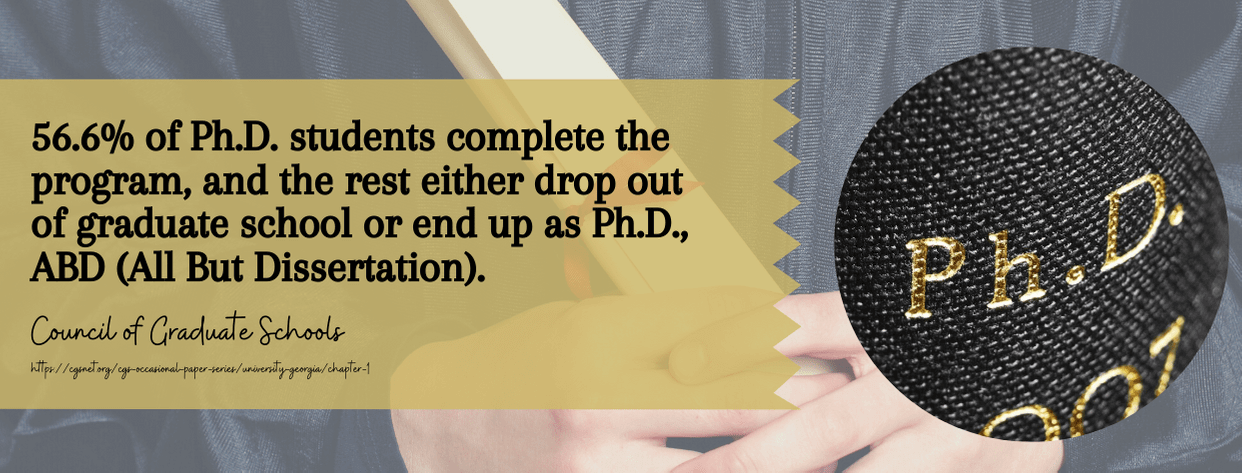
While in graduate school, your main focus is authoring original research, which involves data analysis and evaluation. Depending on your program and department, you may be given the leeway to formulate your area for your research.
However, there are Ph.D. programs that present their students with a selection of research proposals for you to choose from. These proposals are often formulated and peer-reviewed by program supervisors.
You can complete your proposal at a certain term, or year-round, depending on your university or academic institution. Ph.D. students are required to submit a statement or a proposal to be submitted at the end of the term. This will usually take up the first two years of your journey towards your doctor of philosophy degree.
Writing original research is, arguably, the ultimate goal of hundreds of thousands of Ph.D. students. This requirement may vary from one institution to another, or even between subjects.
A doctoral program develops a student’s field of specialty to sharpen their skills to advance their position in their industry. Some doctorate programs require students to attend classes and take examinations, while some require Ph.D. students to handle a teaching load or serve as research assistants.
In the early phases of your doctoral study, you will focus on your chosen field of study. Eventually, you will dive deeper into enhancing your understanding of your specialization to better prepare you for writing your dissertation. At this point, you will start writing your proposal in preparation for your oral defense before a panel of esteemed specialists in your field.
During the final years of graduate school, your dissertation should be your priority. This way, you can move forward with your degree and become a Ph.D. Candidate.
Becoming a Ph.D. candidate from being a Ph.D. student will take time, even more so, your utmost dedication. Before you can be considered a Ph.D. Candidate, you need to submit a minimum of twenty- to thirty-page paper at the end of your first year in graduate school.
Second, you must have completed at least two years of full-time coursework. You will also be asked to show how proficient you are in the research language. In some programs, you need to submit a grant application.
Then, you need to have a draft of your dissertation prospectus. At this point, your prospectus must include your literature review and methodology.
Most importantly, you need to successfully defend your proposal before a committee or panel of experts. Once the committee approves your proposal and you pass the qualifying exams, you can now refer to yourself as a Ph.D. candidate.
After getting approval for your dissertation proposal or prospectus from the panel, you can now refer to yourself as a Ph.D. candidate. This means you get the green light to start writing your dissertation. As a Ph.D. candidate, you can use Ph.D.(c) as part of your credentials.
It signifies that you have now advanced to candidacy. You have reached the final years of your doctoral study, which will be crucial in the trajectory of your academic career.
Aside from having to defend your proposal, some institutions also require Ph.D. candidates to pass a weeklong examination. This often involves three separate written exams that may last for seven hours. You must also pass an oral examination. In this exam, your supervisor, your advisor, and a panel can ask you questions that are related to your discipline.

Now that you are a Ph.D. candidate, you can now start working on your dissertation, but before you begin working, you should take a well-deserved rest.
Having reached your candidacy means you have finished your doctoral studies and can now focus on your research. Writing a research paper entails that you are knowledgeable in your chosen subject.
Reading related literature will better equip you in identifying the gaps in the literature. This way, you may be able to add new knowledge to the subject and through testing your hypothesis and gathering relevant data for your research. Data collection is one of the most critical parts of research, and the viability of your study depends on it.
Moving forward, the data you have collected needs to be processed or analyzed for you to draw up a conclusion. The entire process of writing your dissertation is tedious, so you need patience, dedication, and a passion for research.
As a Ph.D. candidate, you can now use a Ph.D.(c) as part of your credentials. It signifies that you have completed all of your coursework and have now advanced to candidacy.
The (c) means you are currently working on your dissertation. However, including this title in your credentials is inappropriate, even wrong. This designation is very often misused that it has become common among candidates.
First, because a candidacy does not equate to a degree, it is not a credential or a status that is awarded by any university, college, or higher education institution. Also, you can be a candidate for a considerably long time. Unfortunately, some Ph.D. candidates never comply with the dissertation requirement and progress to earning their Ph.D. degree.
In the world of postgraduate studies, they are called Ph.D., ABD, or “all but dissertation.” Unfortunately, according to the Council of Graduate Schools , 56.6% of Ph.D. students complete the program, and the rest either drop out of graduate school or end up as Ph.D., ABD.
The answer to this will depend on the path or subject you choose.
In 2017, the median completion period for completion of a doctorate program was 5.8 years according to the Survey of Earned Doctorates. Typically, a Ph.D. degree will take four to six years to complete, but several factors may prolong this period.
One factor is your field or discipline. Programs like humanities and arts take more than seven years based on the same survey.
Another factor is your academic background. Applying for a Ph.D. program typically requires that you have already completed your master’s degree. This means more time spent in graduate school.
Yes, there are academic institutions that offer professional doctorate degrees specifically designed to accommodate working professionals.
A professional doctorate is a Ph.D. equivalent that allows experienced professionals who aim to earn a doctorate. You can leverage their industry expertise through gaining an academic degree that translates to credibility, and influence in their field.
Students in the program often bring with them years of practical work experience and expertise in various areas, including information technology, business administration, finance, and education. This background will serve as the primary focus of your doctoral research. You can apply your first-hand experience and knowledge in solving real-world problems.
Similar to a Ph.D. degree, you will learn and develop your research methods, design your proposal, and present your findings through writing your doctoral study.
Yes, you can complete your Doctor of Philosophy degree fully online. Unsurprisingly, many Americans resolve to online education to earn a degree, especially an advanced or professional degree.
In a United Nations Study, the U.S. workforce is made up of 85% males and 67% females who are working beyond 40 hours per week. Individuals with family and other obligations are also usually drawn toward online doctorate programs.
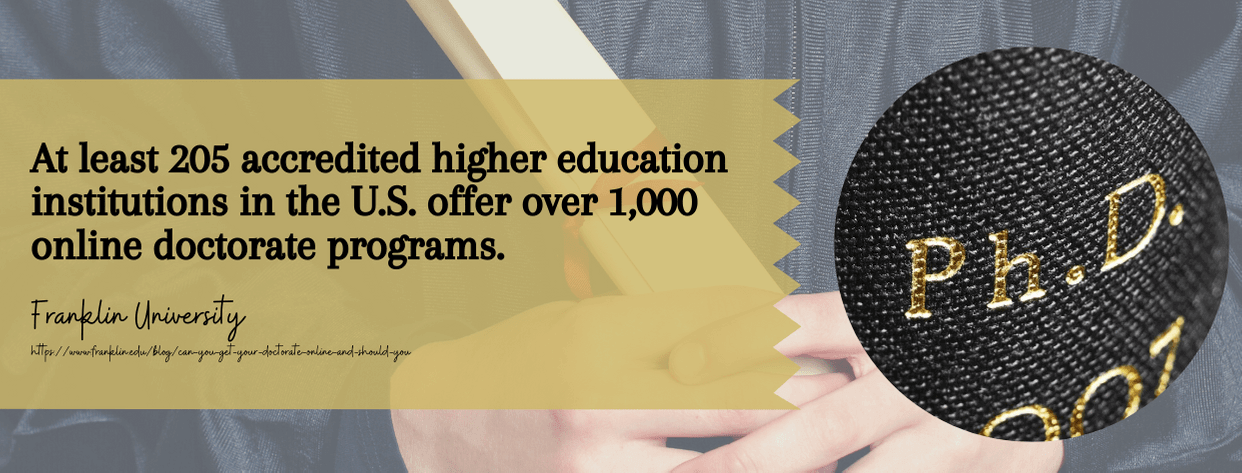
An online Ph.D. program is an attractive offering that more and more working professionals seek. Now, there are at least 205 accredited higher education institutions in the county that offer over 1,000 doctorate programs that can be completed online. Earning your Ph.D. online does not necessarily mean that it will be easy. It can easily be as demanding as the traditional format.
Most importantly, an online doctorate bears the same credibility as the one earned on-campus. It is advised that before you enroll in an online program, you check the accreditation of your college or university. This way, no time, money, or effort will be put to waste.
For additional information, check this out:
- Ph.D.’s That Pay: The 15 Highest-Paying Doctoral Degrees
- Hardest Grad School Interview Questions and Response Tips from Ph.D. Experts
Becoming an Expert by Getting a PhD Degree
Now transforming from a PhD student to a PhD candidate takes time. It just doesn’t happen in a blink of an eye. There is a process that you must take before becoming a PhD candidate. You must complete all your school requirements. That is when you can become a PhD candidate. The main role or task that PhD candidates go through is to make sure that they finish their research. And that they have out down a dissertation.
In student terms, PhD will be like he is completing his final coursework. When someone says that you are in PhD candidacy, this specifically means that you are undergoing PhD training. You are to spread your wings, but you still need some guidance. Now when you reach that time when you are a candidate. It is a chance for you to show that you can do things by yourself.
Now there is no need to worry because your committee is there with you. They also understand that it is the debut time you’re doing this kind of event. So they will guide you in whatever you need to pass this section. And feel free to get help from them in case things get complex.
After all those explanations, so many students can differentiate between being a PhD student and a PhD candidate. So it is easy to go off the topic. So we need to understand why it is so.
PhD student versus PhD candidate
Ok, we cannot deny that being a PhD student and being a PhD candidate are all roads that lead to becoming an expert in a field. There are just a few differences between these two. Below are some of the differences.
- Lack of structure
When doing things like coursework, there elements like structure, deadlines that you must follow. Now that you are on another step. The lecturers want them. So you submit hand in your work within a certain period. A student must have this in after every quarter. It will ensure that you have completed tasks before you move ahead.
Once you move from being a student to a candidate, you will not have deadlines and other things like a syllabus. This whole learning is up to you. A few people still find it hard to shift from the level of having structures to the level of having no structures.
- Academic writing
These skills are so crucial when it comes to putting down your dissertation. It is important. It is because you will need it here more than when you needed it at the coursework level. It is like a new language and a new way of explaining things. You cannot just write ‘people know M and N.’ You must write their identity. How to know this particular theory?
When you are still a student, professors will teach you this particular language, but, as candidates, this becomes a second language.
- Making people happy
Another difference is, when you are a candidate for a PhD, you must reduce the number of people that you are going to make happy. If you become a PhD candidate, you have to keep the committee very happy. It is because they will determine if you are moving forward or you are going to stay in the same position for another time.
Know these differences so that you don’t mix the two up. It is because you need to understand if you a student or a candidate.
Leave a Reply Cancel reply
Your email address will not be published. Required fields are marked *
How to Prepare for Your Dissertation Defense
Explore Jobs
- Jobs Near Me
- Remote Jobs
- Full Time Jobs
- Part Time Jobs
- Entry Level Jobs
- Work From Home Jobs
Find Specific Jobs
- $15 Per Hour Jobs
- $20 Per Hour Jobs
- Hiring Immediately Jobs
- High School Jobs
- H1b Visa Jobs
Explore Careers
- Business And Financial
- Architecture And Engineering
- Computer And Mathematical
Explore Professions
- What They Do
- Certifications
- Demographics
Best Companies
- Health Care
- Fortune 500
Explore Companies
- CEO And Executies
- Resume Builder
- Career Advice
- Explore Majors
- Questions And Answers
- Interview Questions
This question is about education section on resume .
Ph.D. candidate vs. Ph.D. student
The difference between a Ph.D. candidate and a student is important in education, as it helps to understand the level of the person's current educational background. Both are people who are in school, but their exact position varies.
A Ph.D. candidate has completed all coursework and passed qualifying exams. They are now working on completing their dissertation. A student is someone who is enrolled in a doctorate program.
Key Takeaways:

Search for jobs
Related questions for education section on resume, recent job searches.
- Registered nurse jobs Resume Location
- Truck driver jobs Resume Location
- Call center representative jobs Resume Location
- Customer service representative jobs Resume
- Delivery driver jobs Resume Location
- Warehouse worker jobs Resume Location
- Account executive jobs Resume Location
- Sales associate jobs Resume Location
- Licensed practical nurse jobs Resume Location
- Company driver jobs Resume
Jobs Near You

Associate's vs. bachelor's

Residency vs. fellowship

Diploma vs. degree

GED vs. diploma

Bachelor's vs. Master's

- Zippia Answers
- Ph D Candidate Vs Ph D Student
Outstanding Student and PhD-candidate Presentation (OSPP) top tips from previous winners and judges!

Every year at the General Assembly hundreds of students present their research with a lot of time and effort going into preparing these presentations. With the aim to further improve the overall quality of poster presentations and more importantly, to encourage Early Career Scientists to present their work in the form of a poster, the OSP Awards (as they were formerly known), were born. Since the 2016 General Assembly, PICO presentations have been included in the awards, which have been renamed to Outstanding Student and PhD-candidate Presentation (OSPP) Awards .
“There are a thousand posters in a hall, and they are all competing for attention,” highlights Niels Hovius of GFZ, German Research Centre for Geosciences and a former OSPP Judge for the Geomorphology Division, “so, you need to stand out a little bit.”
But, how can you make sure your poster or PICO is a great presentation which achieves that?
This year we asked two OSPP winners for their tips to give a great OSPP presentation! Here is their advice:

Tullia Calogiuri , PhD Candidate, Wageningen University & Research, The Netherlands

Prepare your talk in advance. Practice a lot. Speak clearly, not too slow, not too fast. This is especially relevant if you are a non-native speaker. Prepare your speech if needed. Make a test presentation in front of your supervisor or colleagues many days before to improve your talk and slides. Try to keep eye contact with the audience and avoid reading. And don’t forget that this is a learning experience. In addition, upload your presentation many days in advance and check to avoid surprises. Lastly don’t forget to dress appropriately. Yes, this is also an important point to pay attention to. Your outfit matters. Although there is no official dress code at the EGU, don’t forget that presenting at the EGU is a unique opportunity as a student, and you are there to do your best. It is like a formal appointment, so dress well. As a guide, adopt a business casual dress code.”
Steve Kwatcho Kengdo , PhD Candidate, University of Bayreuth, Germany
At the 2015 General Assembly we spoke to some of the judges and past winners of the award and asked them to share their thoughts on what makes a top poster presentation. We put their top tips together in this short video, which gives you a good idea of the key elements you ought to be thinking about when preparing your poster or PICO presentation.
Click here to display content from YouTube. Learn more in YouTube’s privacy policy .
Always display content from YouTube
If you are participating in OSPP, don’t forget to attach the OSPP label ( blue PNG , yellow PNG ) to your poster board. Alternatively, you might include the label in the poster itself. If you participate with a PICO, you are kindly asked to add the OSPP label to your PICO presentation header.
The OSPP awards are presented at the level of the EGU Programme Groups , a post from the blog archives also has full details of how the presentations are evaluated and you can also find detailed information about the award on the EGU website.
The EGU General Assembly is taking place in Vienna, Austria from 23 to 28 April. Check out the full session programme on the General Assembly website and follow the Assembly’s online conversation on Twitter (#EGU23 is the official conference hashtag).

Related Posts

Leave a Reply Cancel Reply
Your email address will not be published. Required fields are marked *
You may use these HTML tags and attributes: <a href="" title=""> <abbr title=""> <acronym title=""> <b> <blockquote cite=""> <cite> <code> <del datetime=""> <em> <i> <q cite=""> <s> <strike> <strong>
The Department of Political Science
Phd candidate sheharyar imran featured in the johns hopkins newsletter.
Sheharyar Imran discussed the new Chloe Center’s push for the Critical Studies Major, a student-led initiative.
College of Science

Ph.D. microbiology student honored as ASM Young Ambassador
College of Science Ph.D. student Kelly Shannon has been selected as Oregon’s young ambassador for the American Society for Microbiology . With only one candidate chosen for each state, he has joined the ranks of distinctly remarkable up-and-coming microbiologists.
The American Society for Microbiology stands as the oldest and largest single life science membership organization with more than 36,000 members worldwide. Its founding in 1899 began decades of work uplifting local scientific communities across the globe. With one hand in public policy advocacy and another in improved inclusion, ASM takes a microscopic field to macroscopic heights for millions.
As ASM young ambassadors, early-career microbiologists become leaders in their communities and facilitate stronger regional microbiology spheres. Through networking, professional development and collaborative efforts, they collectively work to improve science on a broad scale by effecting change in many smaller areas.
“This is a really exciting role where graduate students from each state in the U.S. — and many countries internationally — get to connect other microbiology students and early-career scientists in our respective states or countries with each other and with ASM resources,” Shannon explained.
As the young ambassador of Oregon, he hopes to ease the stress of students deciding what avenue of microbiology research they want to pursue. He plans to host a microbiology career development seminar series open to both undergraduate and graduate students. Oregon State students are welcome to attend in person and those from other institutions will also be able to join on Zoom.
The series will explore microbiology research career options, how to tackle a transition into industry research and how to competitively market yourself and your skills. Thanks to ASM’s wide spread of resources that tie into the content, students will continue to have support when the series is finished.
Shannon’s time at Oregon State, he says, has prepared him for this position more than anything else.
“All of my peers in microbiology, students and faculty, are such intelligent, hard-working people and they have really taught me everything I know about leadership, organization and public speaking to set me up for this role,” he said. “There are too many valuable experiences at OSU to count, but my advisor, lab mates, microbiology professors, department administrators and advisors and fellow microbiology graduate students have helped me the most out of anything.”
Read more stories about: graduate students , microbiology , awards & recognition , microbiology major
Related Stories
Across the college, explore related stories.

Connect with schools and programs specializing in health care at the Health Professions Fair!

Pernot Microbiology Camp seeks support to sustain STEM opportunities

Celebrating excellence in teaching and advising: 2024 College of Science Awards

Celebrating excellence in research: 2024 College of Science Awards

PhD Student Meaning – What does it mean to be a PhD Candidate?
Obtaining a PhD degree is considered the highest level of academic achievement one can reach.
However, the journey to becoming a PhD candidate is not only about the intellectual pursuit; it can also involve a deeply personal and transformative experience that shapes an individual’s character, resilience, and passion.
The process of earning a Doctor of Philosophy often requires a significant amount of time, commitment, and sacrifice, as well as the ability to navigate the complex landscape of academia.
In this article, we delve into the essence of being a PhD candidate, shedding light on the unique challenges, triumphs, and personal growth that accompanies this rigorous journey, and offering a glimpse into the myriad ways it shapes the lives of those who undertake it.
What does it mean to be a PhD student? What to expect when you become a PhD candidate
A PhD student is someone who is pursuing a doctoral degree and conducting research in their field of study.
In addition to conducting research, PhD students may be involved in teaching and assisting in their department.
On a daily basis, PhD students may spend time:
- analyzing data,
- conducting experiments and original research,
- writing research papers and doing coursework (US degrees)
- attending seminars, conferences, and meetings
To become a PhD student, one needs to have completed undergraduate and postgraduate degrees and have demonstrated strong study skills.
I want to share some unique insights into what it means to be a PhD student from my doctorate.
I graduated with a PhD in Chemistry from an Australian university back in 2011, and although my experience was fantastic, there are five things I wish I had known before embarking on this journey.
- The relationship with your supervisor is crucial. A compatible and supportive supervisor can make your PhD experience enjoyable, whereas a mismatch can make it a struggle. So choose wisely.
- Academia is highly competitive. Not only will you face competition within your research group, but also externally, as the academic system rewards peer-reviewed papers, H-index, and even sometimes involves gaming the system to get ahead.
- The importance of peer-reviewed papers cannot be overstated. They ultimately determine the success of your academic career. The pressure to publish has significantly increased over the years, making it essential to be aware of this reality.
- Grant funding is another critical aspect of academia. Your career success, as well as job security, will heavily rely on your ability to secure external funding for research. Unfortunately, this can be difficult to obtain and may not always correlate with your skill level or qualifications.
- Finally, the uncertainty of outcomes in a PhD can be anxiety-inducing. Unlike undergraduate studies, a PhD requires continuous persistence and working towards goals with constantly shifting goalposts. Developing strong project management skills and self-motivation is crucial.
Being a PhD student can be both challenging and rewarding. Before starting your PhD, take the time to understand the supervisor and the academic culture you’re entering.
And remember, persistence and self-motivation will be your best allies on this exciting journey.
What does PhD stand for exactly? What is the origin of PhDs?
The etymology of “PhD” traces back to the Latin term “Philosophiæ Doctor.”
Breaking down the term:
- Philosophiæ: This word comes from “philosophia,” which itself is derived from the Greek words “philos” (meaning love) and “sophia” (meaning wisdom). Together, they translate to “love of wisdom.” In its early usage, “philosophia” referred to the pursuit of knowledge and wisdom across various disciplines, not just philosophy as it is known today.
- Doctor: The word “doctor” is derived from the Latin verb “docēre,” which means “to teach.” In this context, “doctor” signifies someone with the highest level of expertise in a particular field, qualified to teach others.
So, “Philosophiæ Doctor” or “PhD” signifies a person who has achieved the highest level of expertise in their field, embodying the love of wisdom and knowledge and being qualified to teach others.
Though the term’s origins are rooted in philosophy, it has since expanded to encompass various academic disciplines.
Who makes the best PhD Student for Doctoral Studies?
A PhD student is an individual enrolled in a doctoral degree program, working towards obtaining the highest academic degree in their field of study. They have typically completed undergraduate and postgraduate degrees and are now engaged in research, writing dissertations, and possibly taking on teaching responsibilities.
Personality types that may thrive in academia include:
It is important to note that while certain personality types may be more inclined to thrive in academia, anyone with the right motivation, dedication, and passion for their field can succeed as a PhD student.
The journey towards obtaining a doctoral degree requires persistence and commitment, but it can be a rewarding path for those who are truly driven to contribute to their field of study.
Wrapping up – What PhD admission means for you.
Being a PhD candidate involves a transformative journey that not only expands one’s knowledge but also shapes their character, resilience, and passion. Pursuing a doctoral degree demands significant time, commitment, and sacrifice.
A PhD student is engaged in research, writing dissertations, and possibly teaching. Success in a PhD program requires analytical thinking, curiosity, perseverance, organization, self-motivation, and effective communication.
However, anyone with the right motivation, dedication, and passion for their field can succeed in obtaining a PhD.
Before embarking on this journey, it’s crucial to understand the supervisor and academic culture, as well as the importance of peer-reviewed papers, grant funding, and project management.
The pursuit of a PhD can be challenging yet rewarding, as it paves the way for making original contributions to one’s field of study.

Dr Andrew Stapleton has a Masters and PhD in Chemistry from the UK and Australia. He has many years of research experience and has worked as a Postdoctoral Fellow and Associate at a number of Universities. Although having secured funding for his own research, he left academia to help others with his YouTube channel all about the inner workings of academia and how to make it work for you.
Thank you for visiting Academia Insider.
We are here to help you navigate Academia as painlessly as possible. We are supported by our readers and by visiting you are helping us earn a small amount through ads and affiliate revenue - Thank you!

2024 © Academia Insider
Jump to navigation
Search form

The Graduate School
- Faculty/Staff Resources
- Programs of Study Browse the list of MSU Colleges, Departments, and Programs
- Graduate Degree List Graduate degrees offered by Michigan State University
- Research Integrity Guidelines that recognize the rights and responsibilities of researchers
- Online Programs Find all relevant pre-application information for all of MSU’s online and hybrid degree and certificate programs
- Graduate Specializations A subdivision of a major for specialized study which is indicated after the major on official transcripts
- Graduate Certificates Non-degree-granting programs to expand student knowledge and understanding about a key topic
- Interdisciplinary Graduate Study Curricular and co-curricular opportunities for advanced study that crosses disciplinary boundaries
- Theses and Dissertations Doctoral and Plan A document submission process
- Policies and Procedures important documents relating to graduate students, mentoring, research, and teaching
- Academic Programs Catalog Listing of academic programs, policies and related information
- Traveling Scholar Doctoral students pursue studies at other BTAA institutions
- Apply Now Graduate Departments review applicants based on their criteria and recommends admission to the Office of Admissions
- International Applicants Application information specific to international students
- PhD Public Data Ph.D. Program Admissions, Enrollments, Completions, Time to Degree, and Placement Data
- Costs of Graduate School Tools to estimate costs involved with graduate education
- Recruitment Awards Opportunities for departments to utilize recruitment funding
- Readmission When enrollment is interrupted for three or more consecutive terms
- Assistantships More than 3,000 assistantships are available to qualified graduate students
- Fellowships Financial support to pursue graduate studies
- Research Support Find funding for your research
- Travel Funding Find funding to travel and present your research
- External Funding Find funding outside of MSU sources
- Workshops/Events Find opportunities provided by The Graduate School and others
- Research Opportunities and programs for Research at MSU
- Career Development Programs to help you get the career you want
- Teaching Development Resources, workshops, and development opportunities to advance your preparation in teaching
- Cohort Fellowship Programs Spartans are stronger together!
- The Edward A. Bouchet Graduate Honor Society (BGHS) A national network society for students who have traditionally been underrepresented
- Summer Research Opportunities Program (SROP) A gateway to graduate education at Big Ten Academic Alliance universities
- Alliances for Graduate Education and the Professoriate (AGEP) A community that supports retention, and graduation of underrepresented doctoral students
- Recruitment and Outreach Ongoing outreach activities by The Graduate School
- Diversity, Equity, and Inclusion Funding Funding resources to recruit diverse students
- Graduate Student Organizations MSU has over 900 registered student organizations
- Grad School Office of Well-Being Collaborates with graduate students in their pursuit of their advanced degree and a well-balanced life
- Housing and Living in MI MSU has an on and off-campus housing site to help find the perfect place to stay
- Mental Health Support MSU has several offices and systems to provide students with the mental health support that they need
- Spouse and Family Resources MSU recognizes that students with families have responsibilities that present challenges unique to this population
- Health Insurance Health insurance info for graduate student assistants and students in general at MSU
- Safety and Security MSU is committed to cultivating a safe and inclusive campus community characterized by a culture of safety and respect
- Why Mentoring Matters To Promote Inclusive Excellence in Graduate Education at MSU
- Guidelines Guidelines and tools intended to foster faculty-graduate student relationships
- Toolkit A set of resources for support units, faculty and graduate students
- Workshops Workshops covering important topics related to mentor professional development
- About the Graduate School We support graduate students in every program at MSU
- Strategic Plan Our Vision, Values, Mission, and Goals
- Social Media Connect with the Graduate School!
- History Advancing Graduate Education at MSU for over 25 years
- Staff Directory
- Driving Directions
Google PhD Fellowship Program 2024-25
Graduate Students in computer science and related fields
MSU may nominate up to 4 students for the Google PhD Fellowship .
The Google PhD Fellowship Program was created to recognize outstanding graduate students doing exceptional and innovative research in areas relevant to computer science and related fields. Fellowships support promising PhD candidates of all backgrounds who seek to influence the future of technology. Google’s mission is to foster inclusive research communities and encourages people of diverse backgrounds to apply.
How to apply
Students who can prepare a full nomination packet by May 3, 2024 should ask their advisor to complete the pre-screening form by 8 a.m. on April 22, 2024. Based on pre-screening, finalists within MSU will be notified on April 29, 2024, and their full nomination packets are due at 8 a.m. on May 3, 2024. The pre-screening form requires a short version of the full nomination packet. The Graduate School is coordinating MSU’s nomination process. Please direct questions to [email protected] .

- Call us: (517) 353-3220
- Contact Information
- Privacy Statement
- Site Accessibility
- Call MSU: (517) 355-1855
- Visit: msu.edu
- MSU is an affirmative-action, equal-opportunity employer.
- Notice of Nondiscrimination
- Spartans Will.
- © Michigan State University
Advertisement
Supported by
More Voters Shift to Republican Party, Closing Gap With Democrats
The trend toward the Republican Party among white voters without a college degree has continued, and Democrats have lost ground among Hispanic voters, too.
- Share full article

By Ruth Igielnik
In the run-up to the 2020 election, more voters across the country identified as Democrats than Republicans. But four years into Joseph R. Biden Jr.’s presidency, that gap has shrunk, and the United States now sits almost evenly divided between Democrats and Republicans.
Republicans have made significant gains among voters without a college degree, rural voters and white evangelical voters, according to a new report from the Pew Research Center . At the same time, Democrats have held onto key constituencies, such as Black voters and younger voters, and have gained ground with college-educated voters.
The report offers a window into how partisan identification — that is, the party that voters tell pollsters they identify with or lean toward — has shifted over the past three decades. The report groups independents, who tend to behave like partisans even if they eschew the label, with the party they lean toward.
Voters are evenly divided between Democrats and Republicans.
Among all registered voters
“The Democratic and Republican parties have always been very different demographically, but now they are more different than ever,” said Carroll Doherty, the director of political research at Pew.
The implications of the trend, which has also shown up in party registration data among newly registered voters , remains uncertain, as a voter’s party affiliation does not always predict who he or she will select in an election. But partisan affiliation patterns do offer clues to help understand how the shifting coalitions over the last quarter century have shaped recent political outcomes. During the Trump administration, the Democratic Party’s coalition grew, helping to bring about huge victories in the 2018 midterm elections and a victory for President Biden in 2020.
The G.O.P. has long struggled with the fact that there have generally been fewer Americans who identified as Republicans than as Democrats. After Barack Obama was re-elected as president in 2012, the Republican Party produced an autopsy report that concluded that in order to be successful in future elections, the party would need to widen its tent to include Black and Hispanic voters, who were not traditionally aligned with the G.O.P.
Twelve years later, the party has made some small gains with Hispanic voters. But it is growth with the white working class and with rural voters that has propelled Republicans to equity with Democrats.
The catch is that white working-class voters are slowly declining as a share of registered voters, so the Republican strategy of relying heavily on the group may not be sustainable in the long term.
At the same time, a much talked-about broad political realignment among Black and Hispanic voters has yet to materialize, at least by the metric of party identification.
The education gap among white voters has grown dramatically since 2010.
Percent who identify as Republican or lean toward the Republican party
Republicans’ growing strength with white working-class voters represents one of the biggest political schisms in the country over the past 15 years. In the 1990s and early 2000s, Democrats had a slight partisan identification advantage among voters without a college degree, while college-educated voters were more evenly divided between the two parties. Beginning in the early 2010s — and accelerating during the presidency of Donald J. Trump — voters without a college degree, in particular white voters without a degree, increasingly moved toward the Republican Party.
Now, nearly two-thirds of all white noncollege voters identify as Republicans or lean toward the Republican Party.
And Republicans are making gains among white women, as well. In 2018, a year after the Women’s March that attracted millions to protest Mr. Trump’s policies, the group was split about evenly between Democrats and Republicans. But since then, Republicans have slowly been gaining ground. They now hold a 10 percentage point partisanship advantage.
Overall, over most of the last 30 years, white voters have been more likely to identify as Republicans than Democrats, though the gap closed briefly in the mid-2000s.
While Hispanic voters are still far more likely to identify as Democrats, the party’s edge with the group has narrowed in the past few years. Currently, 61 percent of Hispanic voters identify as Democrats or lean toward the Democratic Party, down from nearly 70 percent in 2016. That trend mirrors polling in 2020 and 2024 that has shown the potential for support for Mr. Trump to grow among Hispanic voters.
That change appears most notable among Hispanic voters who do not have a college degree or who identify as Protestant. As recently as 2017, the latter group leaned Democratic; now, it is more likely to identify as Republican, even as Hispanic Catholics are still more likely to identify as Democrats.
These shifts in partisanship fall short of what some predicted to be a political realignment, said Bernard Fraga, an associate professor of political science at Emory University who studies Latino voters.
But Latino voters care deeply about the economy, Mr. Fraga noted, and Latinos who are ideologically conservative are interested in Republicans and their plans for the country.
“It is also important to remember that the Latino population is extremely dynamic,” Mr. Fraga said. “There are a tremendous number of newly eligible voters in every election cycle. And what we perceive as a change or shift for Latinos is going to be disproportionately due to new voters.”
“About one third of Latino voters weren’t even in the electorate before 2016,” he added.
More Hispanic voters now identify as Republicans than in 2016.
Percent who identify as Republican or lean toward the Republican Party
Black voters still overwhelmingly associate with the Democratic Party: Eighty-three percent of Black voters identify as Democrats or lean Democratic. There has been a small decline since 2020, when the share of Black voters who identified as Democrats was about five percentage points higher. Among Black men, 15 percent currently identify as Republicans, the same share as 30 years ago.
Ruth Igielnik is a polling editor for The Times, where she writes and analyzes surveys. She was previously a senior researcher at the Pew Research Center. More about Ruth Igielnik
Our Coverage of the 2024 Election
Presidential Race
The start of Donald Trump’s criminal trial in Manhattan drew intense security, smothering media coverage and loud demonstrations to a dingy courthouse that will be the unlikely center of American politics for the next six weeks.
President Biden will kick off a three-day tour of Pennsylvania , a crucial battleground state, with a speech that focuses on taxes and aims to contrast his policies with those of Trump.
Trump leaned heavily on major Republican donors in March as he sought to close the financial gap separating him from Biden, new federal filings showed.
Vice-Presidential Calculations: As Trump sifts through potential running mates, he has peppered some advisers and associates with a direct question: Which Republican could best help him raise money ?
Embracing the Jan. 6 Rioters: Trump initially disavowed the attack on the Capitol, but he is now making it a centerpiece of his campaign .
Mobilizing the Left: Amid the war in Gaza, the pro-Palestinian movement has grown into a powerful, if disjointed, political force in the United States. Democrats are feeling the pressure .
On a Collision Course: As president, Trump never trusted the intelligence community. His antipathy has only grown since he left office, with potentially serious implications should he return to power .
2024 Amit and Meena Chakma Award for Exceptional Teaching by a Student Awarded to School of Planning PhD Candidate Ryan Lok
Ryan Lok is a PhD Candidate in the School of Planning. Ryan is described as an inspirational, kind, and supportive teacher. One student remarked that Ryan inspired them to explore a career in education: “Once, when conversing with Ryan, he told me I had good leadership qualities and encouraged me to pursue also being a TA in the future. I felt recognized and understood by this, and I appreciated his dedication to knowing his students well enough to know that this is something I wanted to do.”
Another student mentioned: “Being a teaching assistant requires passion, organizational skills, an approachable attitude, and determination to facilitate an engaging tutorial. Those qualities are evident in Ryan's classes."
A faculty member shared this commendation: “One of Ryan’s greatest assets as a teacher is his ability to create a safe and supportive learning environment that also encourages students to step out of their comfort zone and build new skills and capacities for urban and regional planning.

School of Planning PhD Candidate Ryan Lok
- Current students ,
- Current undergraduate students ,
- Current graduate students ,

IMAGES
VIDEO
COMMENTS
PhD Candidate vs Student: 6 Key Differences. There are a number of key differences between a PhD student vs PhD candidate, from their status to the structure and nature of study. Note: Some universities have recently started adopting hybrid approaches (where there is no clear difference between PhD students and PhD candidates). These programs ...
A PhD student is different from a PhD candidate in that the student is still working through the coursework. They have not yet begun the dissertation process or passed the qualifying exams. A PhD student may also be in the process of taking the qualifying exams, but not yet finished with them. Many people believe that earning a doctorate degree ...
A PhD student is in the initial stages of their program, actively engaging in coursework, research, and academic requirements. On the other hand, a PhD candidate has advanced beyond coursework, passed comprehensive exams, and is focused primarily on independent research and the completion of their dissertation.
At a glance. A doctoral degree, whether a PhD or a practitioner doctorate, is the highest academic achievement one can pursue at a university. A doctoral student is an individual who's been accepted into a doctoral program and is working through classes and coursework. A doctoral candidate has completed the coursework portion of a doctoral ...
Here in the U.S., a "Ph.D. Candidate" is a student who has completed all of the academic requirements for their degree, except their dissertation. So this works in the USA and Canada I presume, because they have structured PhD programs where you attend courses as part of your PhD.
Published on: June 14, 2023. Welcome to this comprehensive article on understanding the real difference between a PhD student and a PhD candidate. Both terms denote stages in a doctoral journey, but they imply different responsibilities, expectations, and milestones. A PhD student is in the initial stages of their doctoral journey, undertaking ...
A candidate is someone who has fulfilled all the requirements for the degree except the dissertation. I'm a historian (see my earlier post about being a humanist at MIT ), so my path to candidacy differs a bit from other doctoral tracks at MIT. But whatever the discipline, the transition from student to candidate is an arduous process.
In other words, a PhD student is still completing their coursework. They could be on the first day of their PhD program. A PhD candidate has completed all of the requirements for their degree except their dissertation (yes, that's the infamous " all but dissertation " status). PhD candidacy means you're a PhD in training.
PhD student vs candidate. A PhD student is currently enrolled in a PhD program. The learning style for these students is hybrid, meaning that a student can learn either online, on-site, or both. Students who are enrolled in this type of program are often required to complete certain course credit loads and pass exams. The program involves a ton ...
A PhD Candidate is an individual who is currently enrolled in a doctoral program at a university or other tertiary education institution. They are usually referred to as " PhD students" or "PhD candidates.". In order to qualify for the PhD, a candidate must complete all of the program's coursework requirements and write and defend a ...
The main distinction between a PhD candidate and a PhD student is that as a student, one is still engaged in course-related activities such as attending classes, writing tests and exams, and completing assignments. On the other hand, becoming a PhD candidate puts you one step closer to earning a doctoral degree and adding the title PhD to your ...
Benefits of Being a Ph.D. Candidate. While being a Ph.D. candidate often means accepting additional responsibilities in your department, it also leads to new and exciting opportunities. Ph.D. candidates are afforded more consideration for conference papers and panels, as well as travel and research funding.
A PhD student is someone in a graduate program to get their PhD. I'm sharing the biggest ... What is the difference between a PhD Candidate and a PhD Student? A PhD student is someone in a ...
A PhD research student takes on a project focusing on a particular topic. They will zone in on a research hypothesis, explore it and write up the results. Once they complete this they obtain a Doctor of Philosophy degree - which is the highest level of higher education. A PhD research student will spend between three to seven years - full or ...
A Ph.D. degree or a doctorate or doctoral degree is globally recognized as the highest level of academic degree and presupposes the completion of an original dissertation or research. A traditional doctorate follows a three- to four-year degree, but some institutions offer opportunities to fast-track the degree, subject to stringent requirements.
A PhD candidate is an individual who has completed the necessary requirements and is moving towards their research, while a PhD student is still in the early stages of their doctoral journey. Both stages are crucial in the pursuit of a PhD degree and require dedication, hard work, and a passion for research.
While the difference between PhD students and PhD candidates may seem small, it is an important distinction. For example, at some universities, PhD students must pass a comprehensive exam or ...
Yes, a PhD student is a graduate student. They have spent up to 4 years in their undergraduate programs in order to qualify for admission into a PhD program. PhD students are able to call themselves graduate students but many choose to refer to themselves as PhD students or candidates.
PhD stands for Doctor of Philosophy. This is one of the highest level academic degrees that can be awarded. PhD is an abbreviation of the Latin term (Ph)ilosophiae (D)octor. Traditionally the term 'philosophy' does not refer to the subject but its original Greek meaning which roughly translates to 'lover of wisdom'.
Making people happy. Another difference is, when you are a candidate for a PhD, you must reduce the number of people that you are going to make happy. If you become a PhD candidate, you have to keep the committee very happy. It is because they will determine if you are moving forward or you are going to stay in the same position for another time.
By Kate Swindlehurst - Mar. 12, 2023. The difference between a Ph.D. candidate and a student is important in education, as it helps to understand the level of the person's current educational background. Both are people who are in school, but their exact position varies. A Ph.D. candidate has completed all coursework and passed qualifying exams.
PhD students and PhD researchers are not the same thing. A "PhD researcher" is a researcher who has a PhD, while a PhD student is working on a project in order to obtain a PhD (i.e. does not have the degree yet). I agree with you, that the term "PhD student" in English is rather unfortunate - in reality, it is much closer to an apprenticeship ...
Every year at the General Assembly hundreds of students present their research with a lot of time and effort going into preparing these presentations. With the aim to further improve the overall quality of poster presentations and more importantly, to encourage Early Career Scientists to present their work in the form of a poster, the OSP Awards (as they were formerly known), were born. Since ...
Sheharyar Imran discussed the new Chloe Center's push for the Critical Studies Major, a student-led initiative. Skip to the content. Johns Hopkins University. Krieger School of Arts & Sciences. The ... PhD Candidate Sheharyar Imran featured in The Johns Hopkins Newsletter. April 10, 2024 April 10, ...
College of Science Ph.D. student Kelly Shannon has been selected as Oregon's young ambassador for the American Society for Microbiology. With only one candidate chosen for each state, he has joined the ranks of distinctly remarkable up-and-coming microbiologists.
A PhD student is an individual enrolled in a doctoral degree program, working towards obtaining the highest academic degree in their field of study. They have typically completed undergraduate and postgraduate degrees and are now engaged in research, writing dissertations, and possibly taking on teaching responsibilities.
ATTENTION:Graduate Students in computer science and related fieldsMSU may nominate up to 4 students for the Google PhD Fellowship.The Google PhD Fellowship Program was created to recognize outstanding graduate students doing exceptional and innovative research in areas relevant to computer science and related fields. Fellowships support promising PhD candidates of all backgrounds who seek to ...
The trend toward the Republican Party among white voters without a college degree has continued, and Democrats have lost ground among Hispanic voters, too.
The gap between Biden and Trump narrows particularly when pollsters also ask about independent and third-party candidates, like Kennedy, Cornel West or Green Party candidate Jill Stein, suggesting ...
Ryan Lok is a PhD Candidate in the School of Planning. Ryan is described as an inspirational, kind, and supportive teacher. One student remarked that Ryan inspired them to explore a career in education: "Once, when conversing with Ryan, he told me I had good leadership qualities and encouraged me to pursue also being a TA in the future.